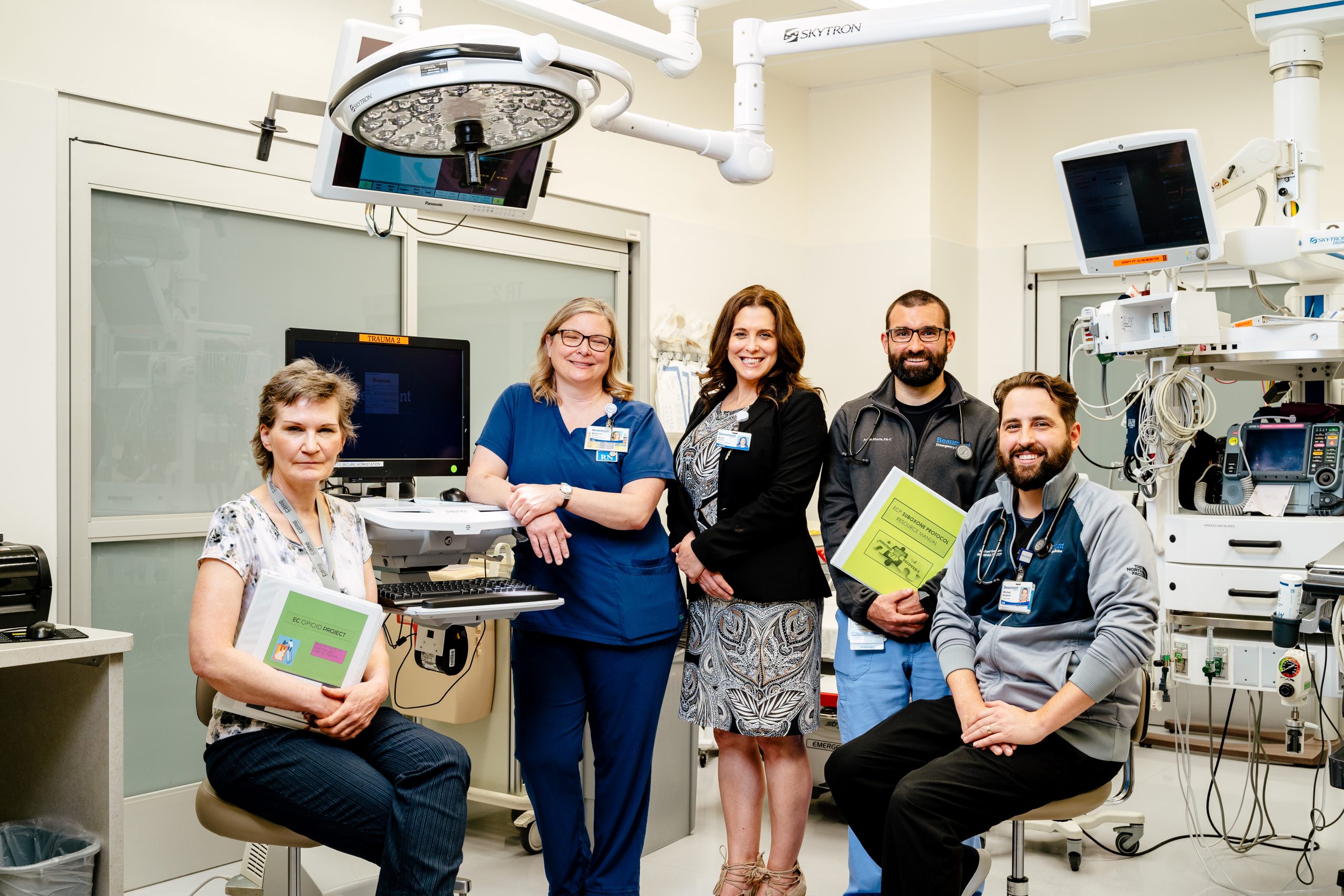
2021 Annual Report
The Jewish Fund
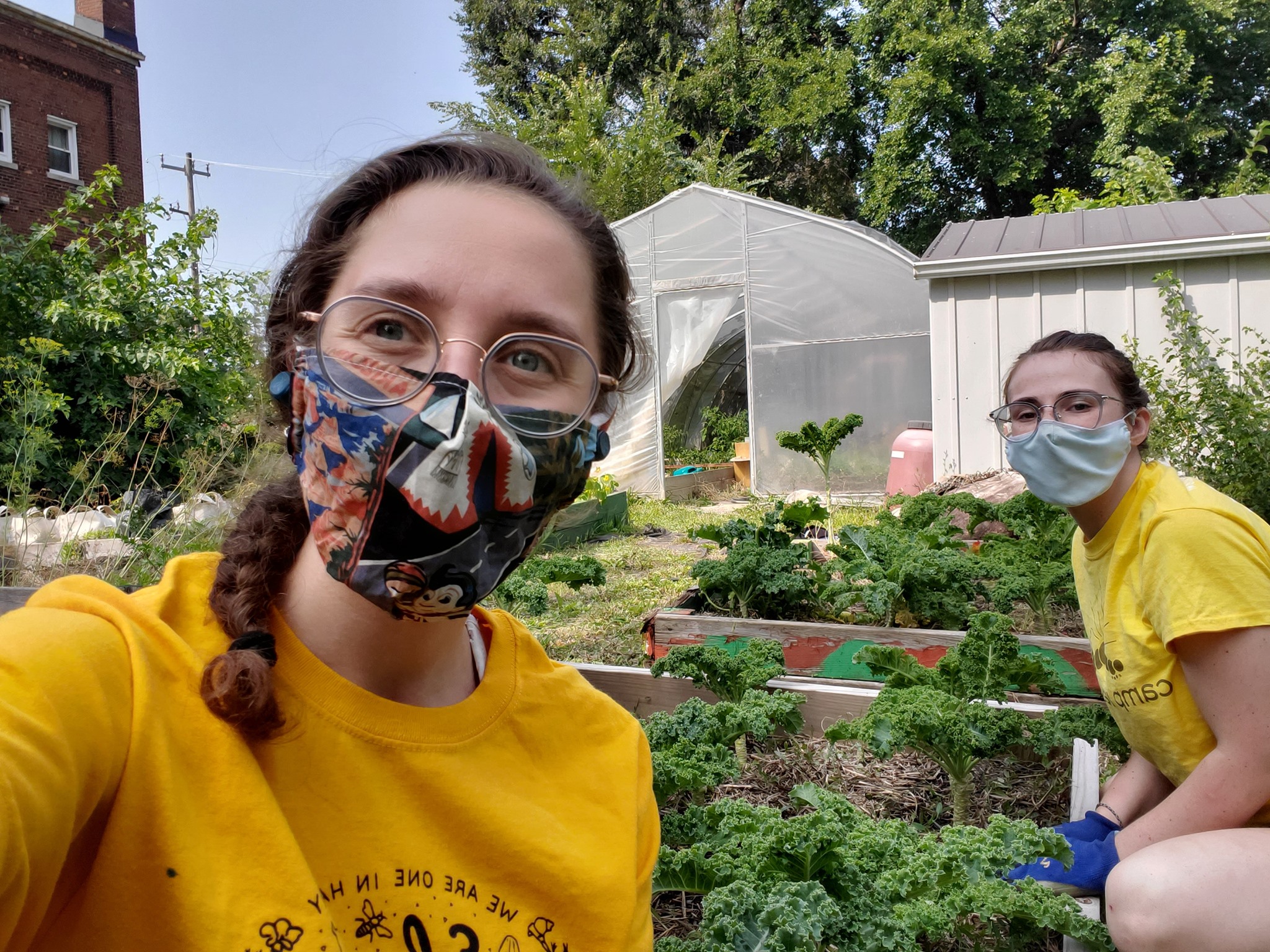
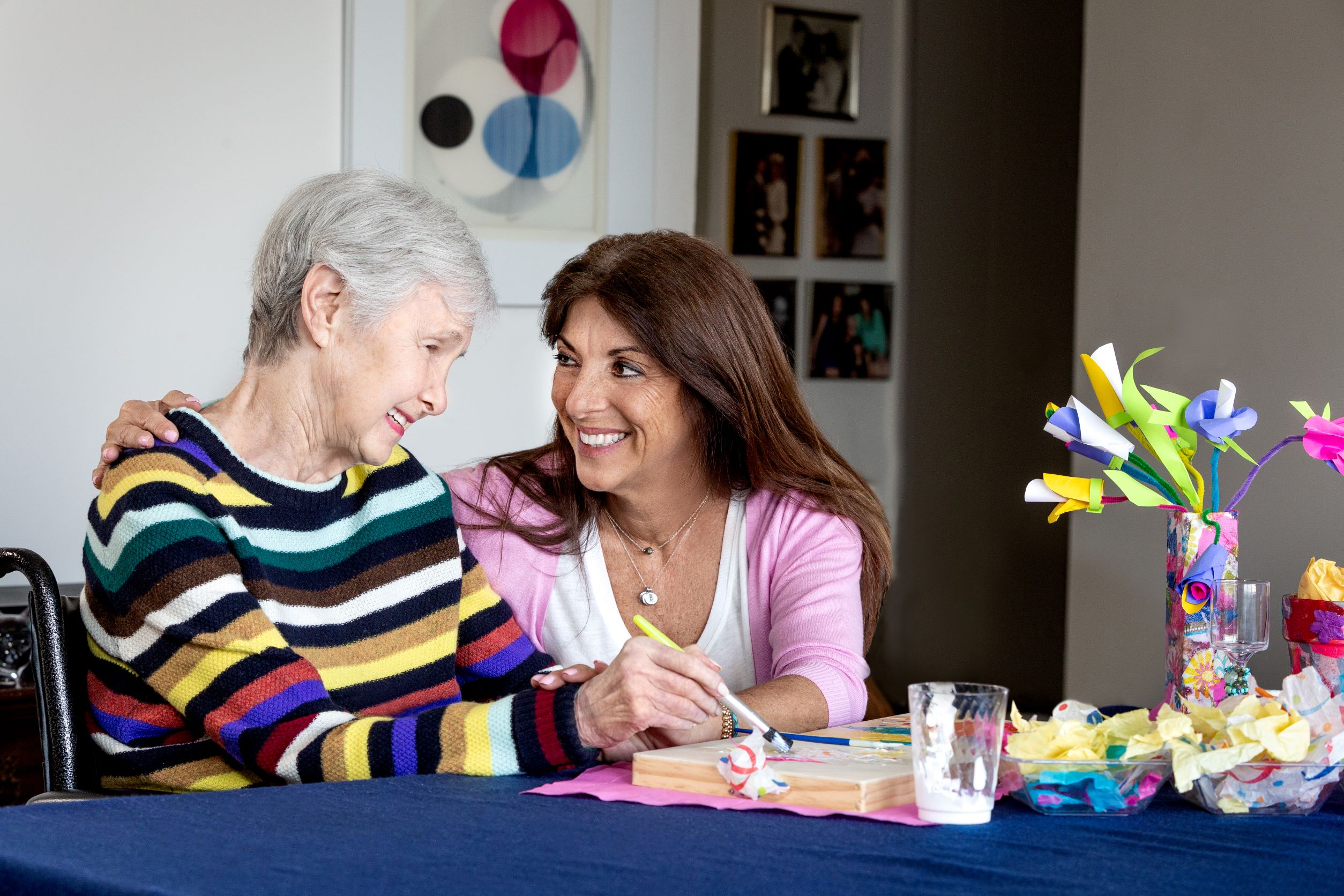
Sosnick Award
And the 2021 Robert Sosnick Award of Excellence recipient is…
Read More About the Sosnick Award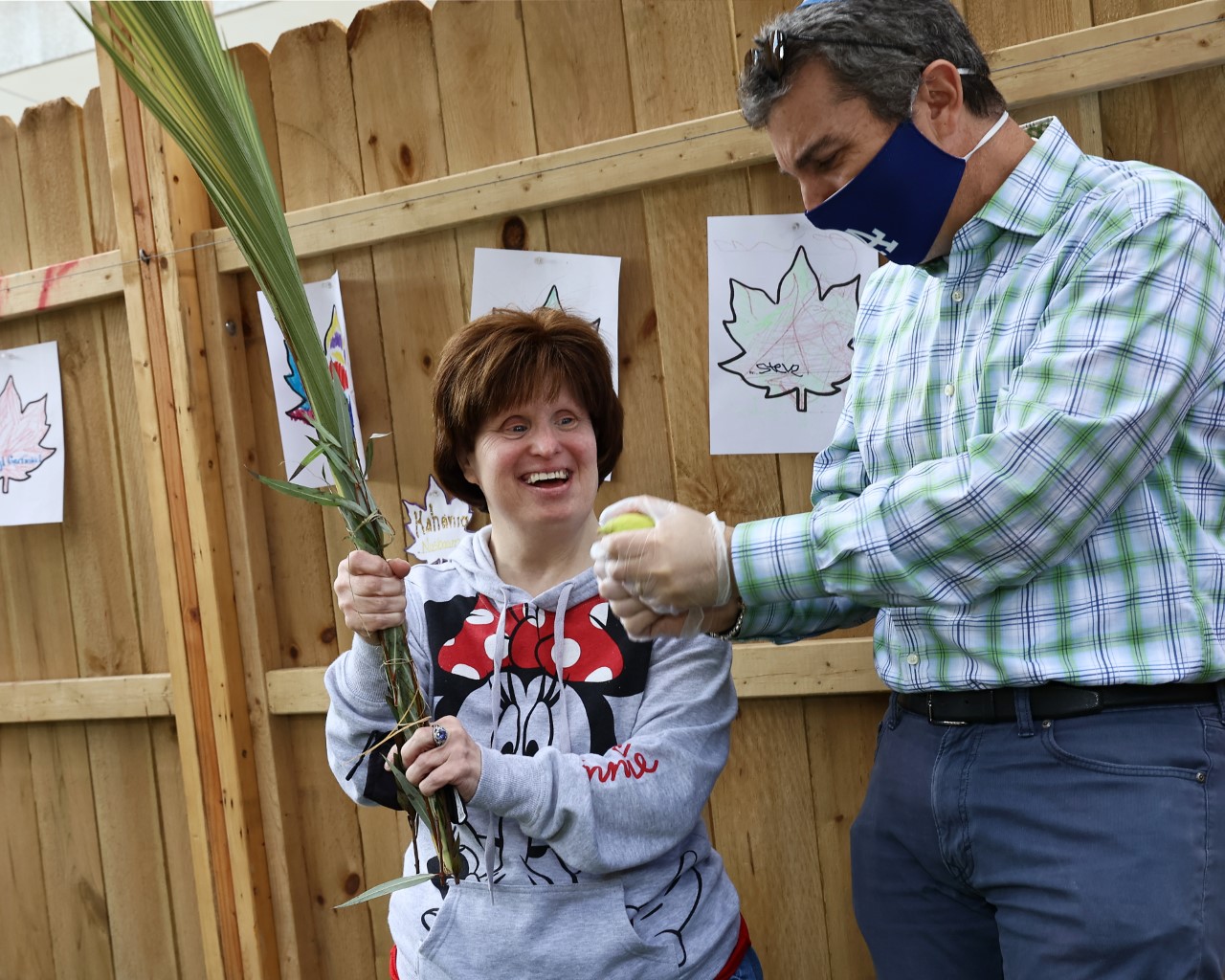
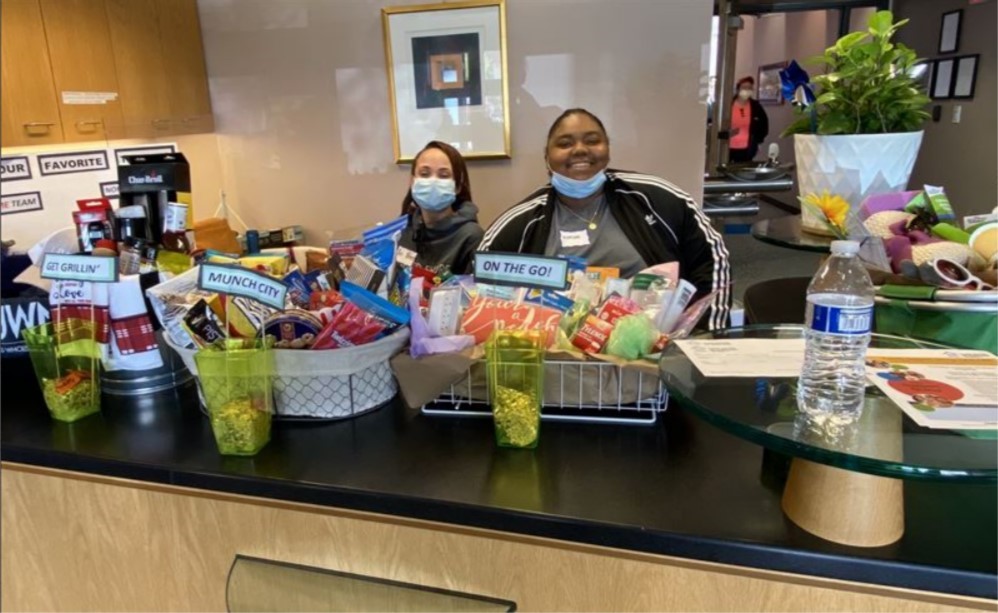
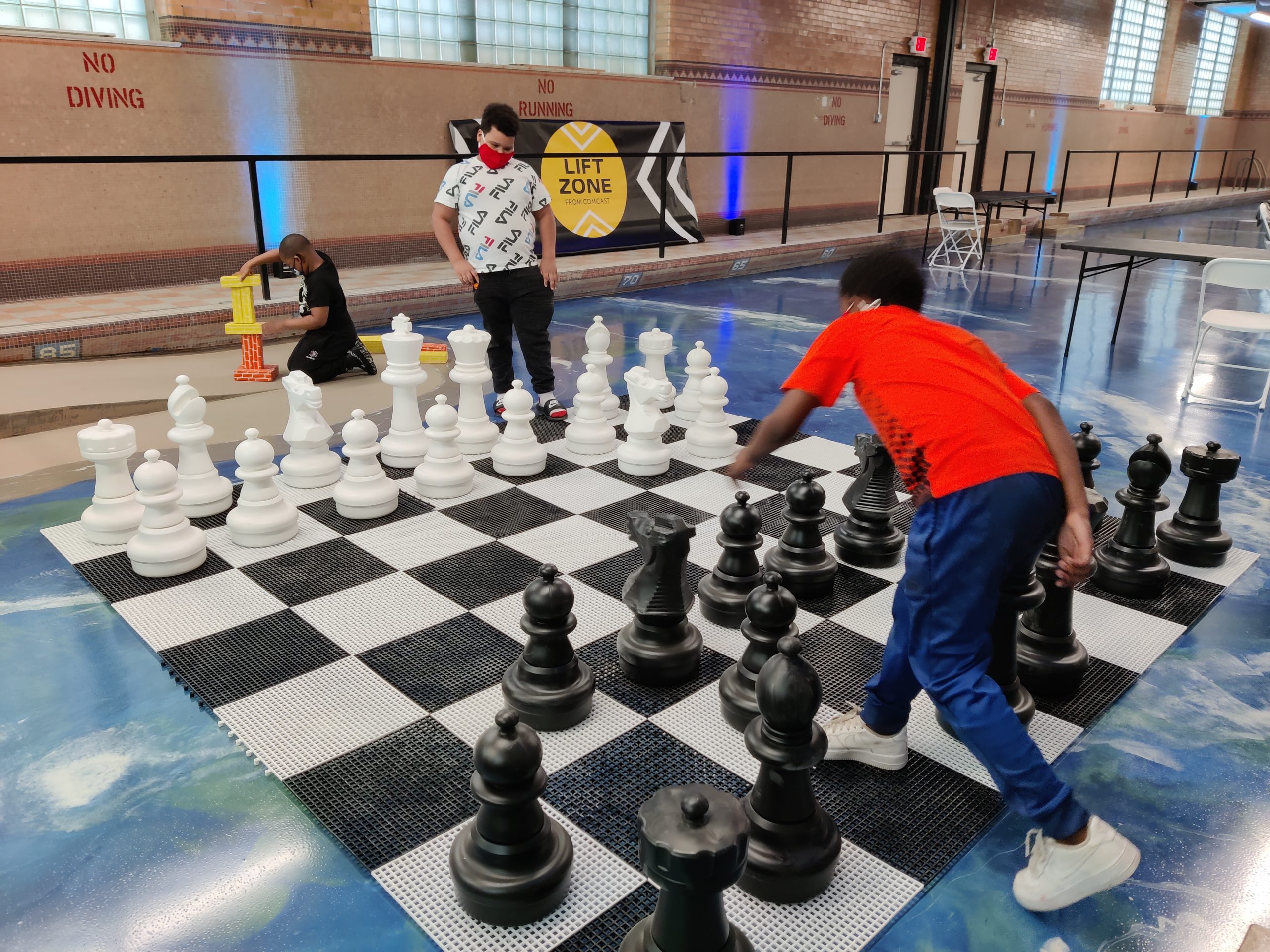
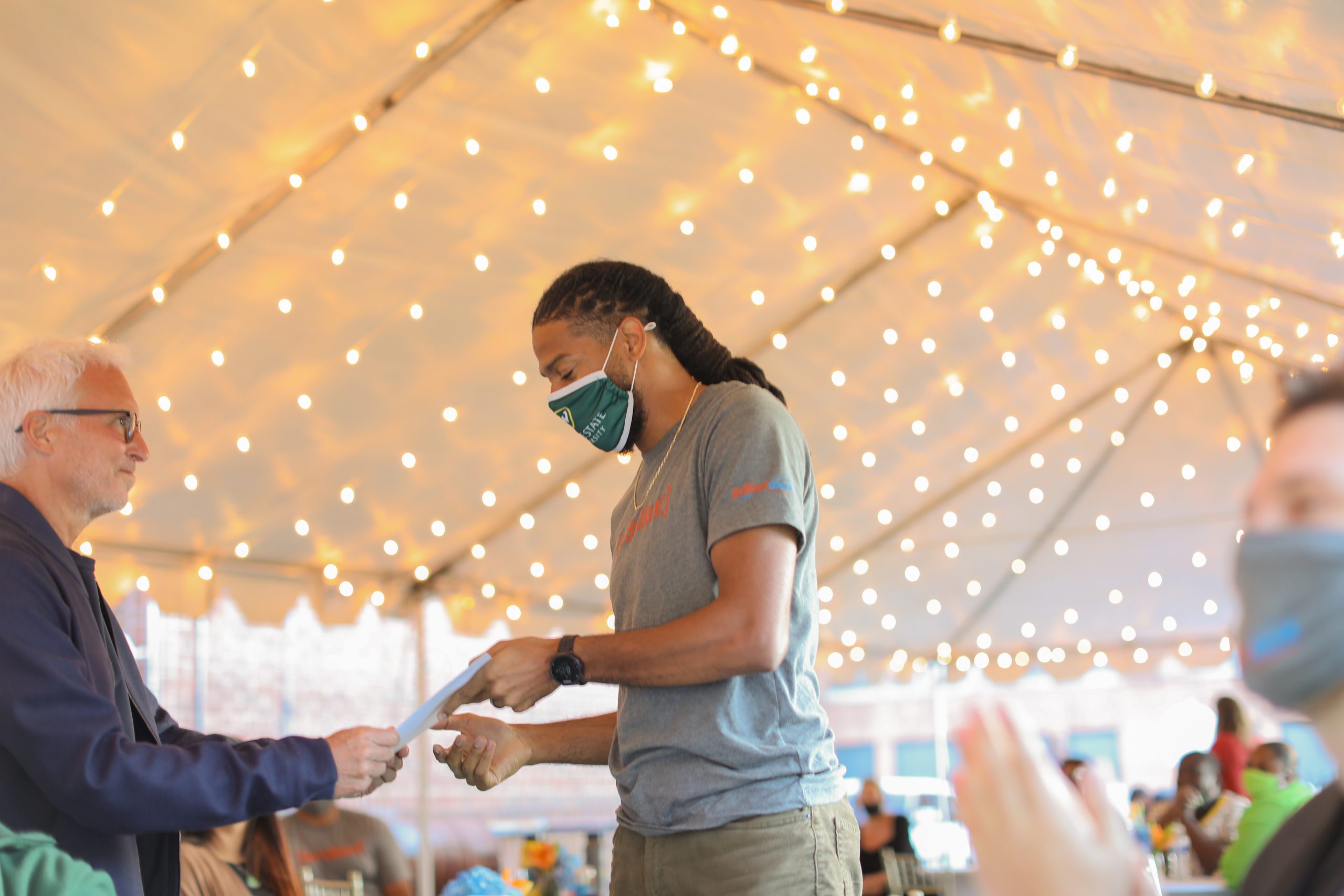
Board Members and Staff
Meet Our PeopleLetter from the Board Chair
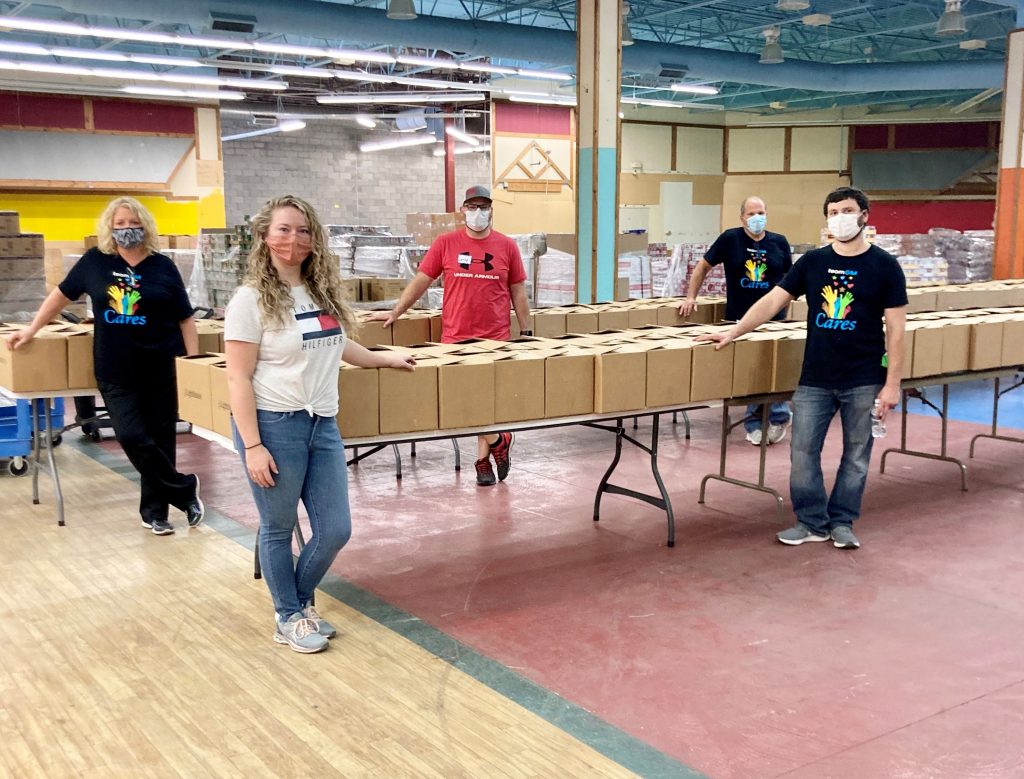
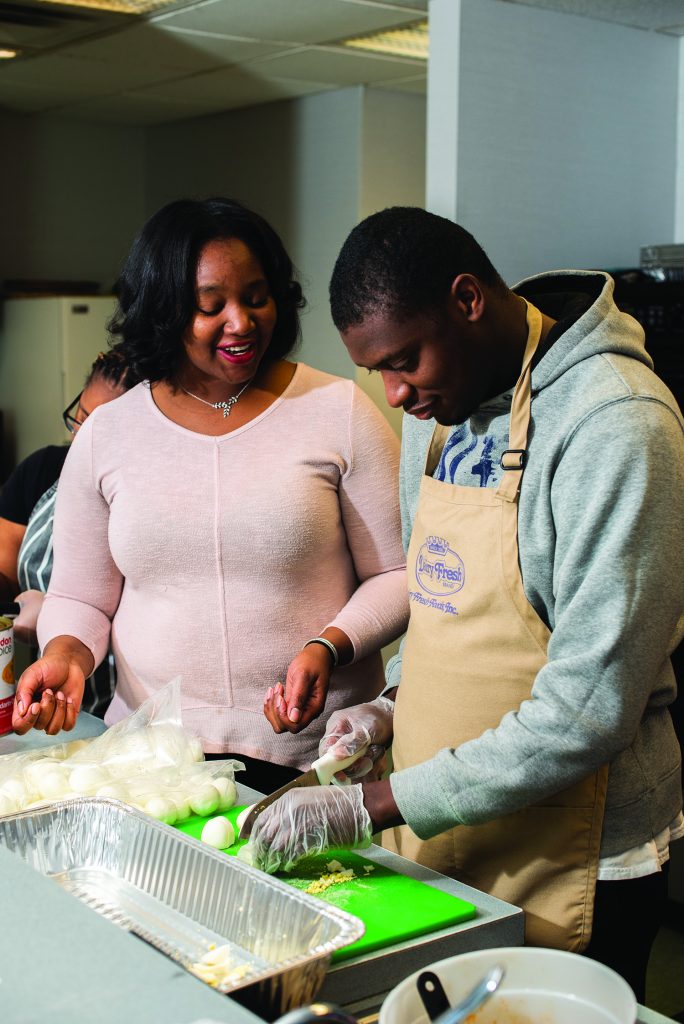
I am writing this letter as I complete my first year as Chair of The Jewish Fund. While this has been a most rewarding year, it also feels as though it’s been far longer than twelve months. The past year and a half held a range of emotions, challenges, rewards, and insights. Last year, we presented our annual report during the height of the pandemic; now we will offer some lessons we’ve learned from our grant partners and from our own experiences as a community grantmaker and partner.
For those of you familiar with The Jewish Fund as a grant partner, I think you will agree that we have always been nimble and responsive to you and on your behalf. The past year and a half heightened our understanding of your work as leaders, providers of essential services and supporters to vulnerable and at-risk fellow community residents. We listened intensively and observed with greater compassion and eagerness to learn. In many ways, we strengthened our awareness of the humanity of human service and health directed organizations, by focusing our attention on the whole person, the whole family, and the whole community. The value of services that address multiple needs became even clearer and the determination to provide referrals and resources to address needs that were outside the scope of one’s organization scope was inspiring.
Now, and moving forward, The Jewish Fund is taking the time to listen and learn and to encourage our grant partners to, in many cases, slow down. It is essential to take the time to learn from the impact of the pandemic, to revisit priorities and plans, and see beyond today’s needs boldly and effectively. This is an opportunity to consider the needs of tomorrow and to avoid missing the opportunity to learn from our experiences during the COVID-19 crisis.
One of the outcomes of the pandemic on The Jewish Fund is our newly launched provision of General Operating Support grants. These grants, considered by an invitation process, will provide some of our long-term grant partners with the freedom to innovate, to take risks and to relieve ongoing institutional stressors. We have learned the value of our foundation includes this type of support. Our continued focus on new initiatives, capacity building projects, and expansions of effective services is the mainstay of our grantmaking and we encourage those community organizations that align with our mission to reach out to discuss your vision and plans with us. We look forward to a year of learning from the past and strengthening the Metro Detroit community with our valued grant partners.
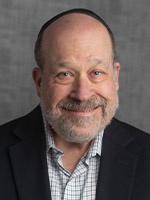

- Michael Eizelman, Chair
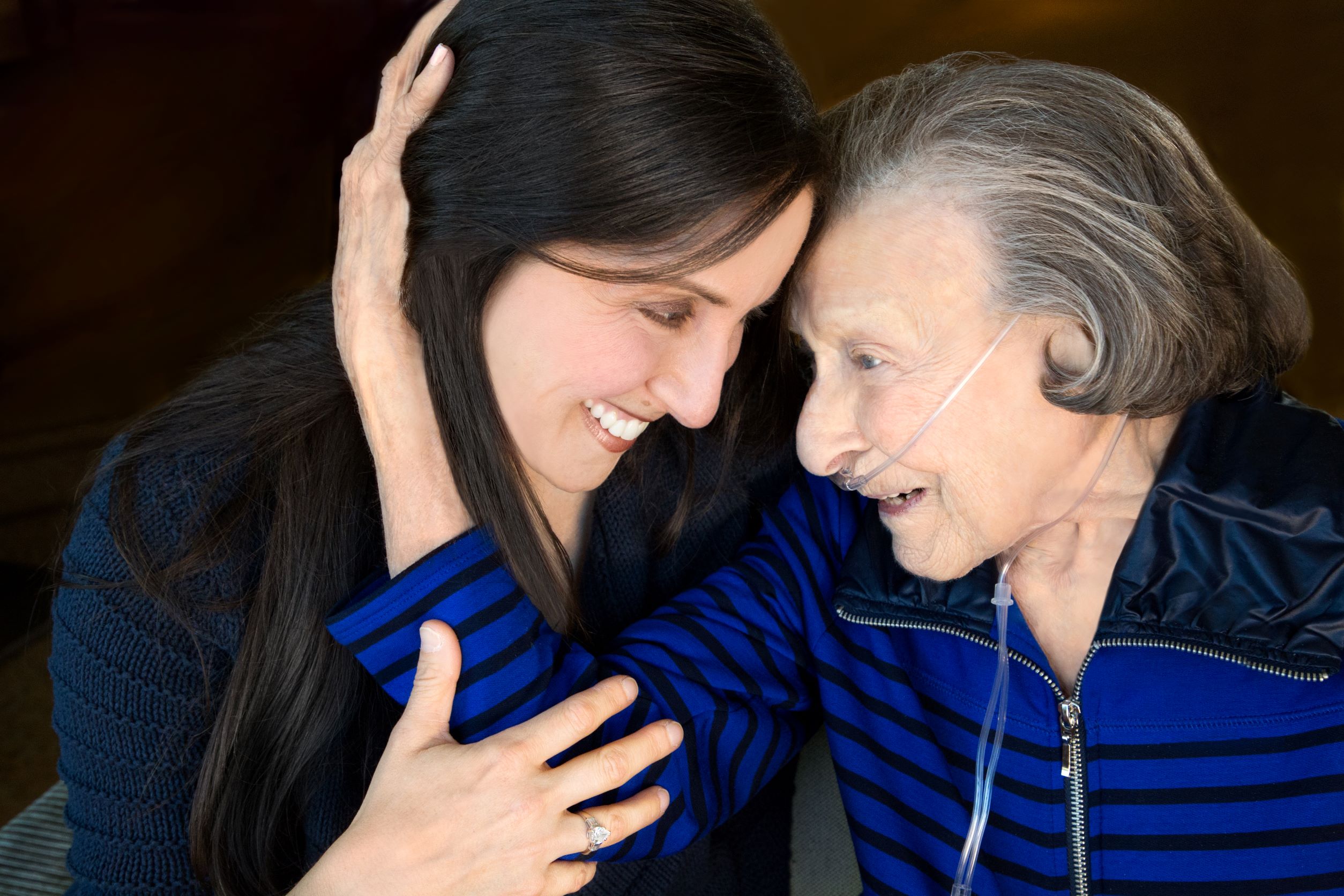
The Jewish Hospice and Chaplaincy Network
2021 Sosnick Award Recipient
Sosnick Award
The Robert Sosnick Award of Excellence was established in memory of Robert Sosnick, whose bold vision and leadership skills led to the creation of The Jewish Fund. In tribute to Mr. Sosnick and in keeping with the mission of The Jewish Fund, the program selected for the award should represent the ideals and standards of excellence that are both hallmarks of this award and characteristics of Robert Sosnick. Innovation, collaboration, achievement of program objectives, impact on quality of life, management of resources and sustainability are all key criteria for a program’s selection of this annual award which includes a $25,000 prize.
Jewish Hospice and Chaplaincy Network (JHCN) is a long-term partner of The Jewish Fund and 2021 marks its second time to be awarded the Robert Sosnick Award of Excellence. It has received over $1.5 million in grants from The Fund, primarily to expand its services. JHCN developed LifeLinks in 2015 as a three-year pilot palliative care program to fill the healthcare gap for home-bound, hospice-ineligible, terminally ill Jewish patients by linking them to resources that could provide pain and symptom care. These services include helping patients and their doctors manage active cancer, end-stage heart, lung and kidney disease, as well as progressive neurological diseases. JHCN worked through numerous challenges in the earliest phase of LifeLinks, including staffing and obtaining appropriate patient referrals. Through its efforts, it became clear to physicians that LifeLinks could improve their patient care and solace. The program’s innovative approach to serving the unmet needs of a population that had fallen through the cracks has drawn the attention of communities across the country.
JHCN developed its Life Enrichments program in 2017 and expanded in 2018 with a grant from The Jewish Fund and private donations. This program now includes several specialized services to home-bound palliative care and hospice patients, including music, pet therapy, art therapy, and visual imagery. LifeLinks has transformed its services to include individuals in their final years of life, rather than the final months of life. Lifelinks has an average daily client census of 180, including palliative and hospice care. Its programs have enhanced the quality of life for many hundreds of clients over the years. For the clients and their family members and/or caregivers, these experiences have brought joy, comfort, and community connections.
With the in-person service disruptions associated with the COVID-19 crisis, JHCN adapted all its direct services to virtual activities. Given the necessary and extensive isolation experienced by many of its clients, additional virtual enrichments, such as guided imagery and gentle exercise, were added. The organization relies solely on donations and has recently been a recipient of several foundation grants. Its successful fundraising program includes an endowment campaign which has attained its $10 million goal.
The Jewish Fund is so proud to partner with Jewish Hospice and Chaplaincy Network. The award committee noted JHCN’s alignment with the values lived and supported by Robert Sosnick and is proud to recognize it with this honor.
Past Recipients
- 2020 Ruth Ellis Center
- 2019 Tamarack Camps’ Special Needs Inclusion Program
- 2018 St. Joseph Mercy Oakland – Mercy Dental Center
- 2017 Hamtramck School-Based Health Center in partnership with Children’s Hospital of Michigan Foundation
- 2016 Starfish Family Services
- 2015 Hebrew Free Loan
- 2014 Isaac Agree Downtown Synagogue
- 2013 Fair Food Network
- 2012 Forgotten Harvest
- 2011 Kadima
- 2010 Summer in the City
- 2009 JARC
- 2008 Jewish Senior Life/JVS
- 2007 Jewish Family Service
- 2006 Jewish Community Center
- 2005 City Year Detroit
- 2004 Children’s Dental Health Foundation
- 2003 DMC/Sinai Grace Hospital
- 2002 Jewish Hospice & Chaplaincy Network
- 2001 Kids Kicking Cancer
- 2000 JVS/Jewish Senior Life
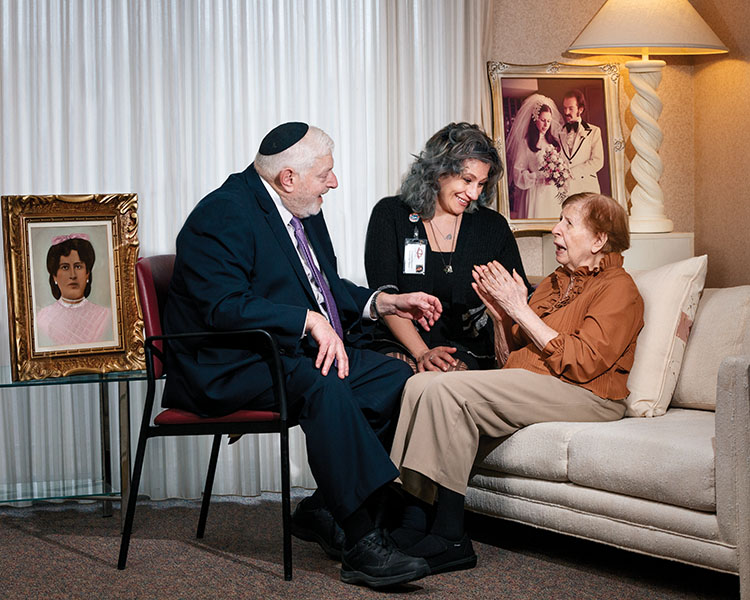
The relief of suffering requires more than treating physical pain. Research supports that providing life enrichment to patients and their stressed families relieves anxiety and brings a sense of peace and comfort.
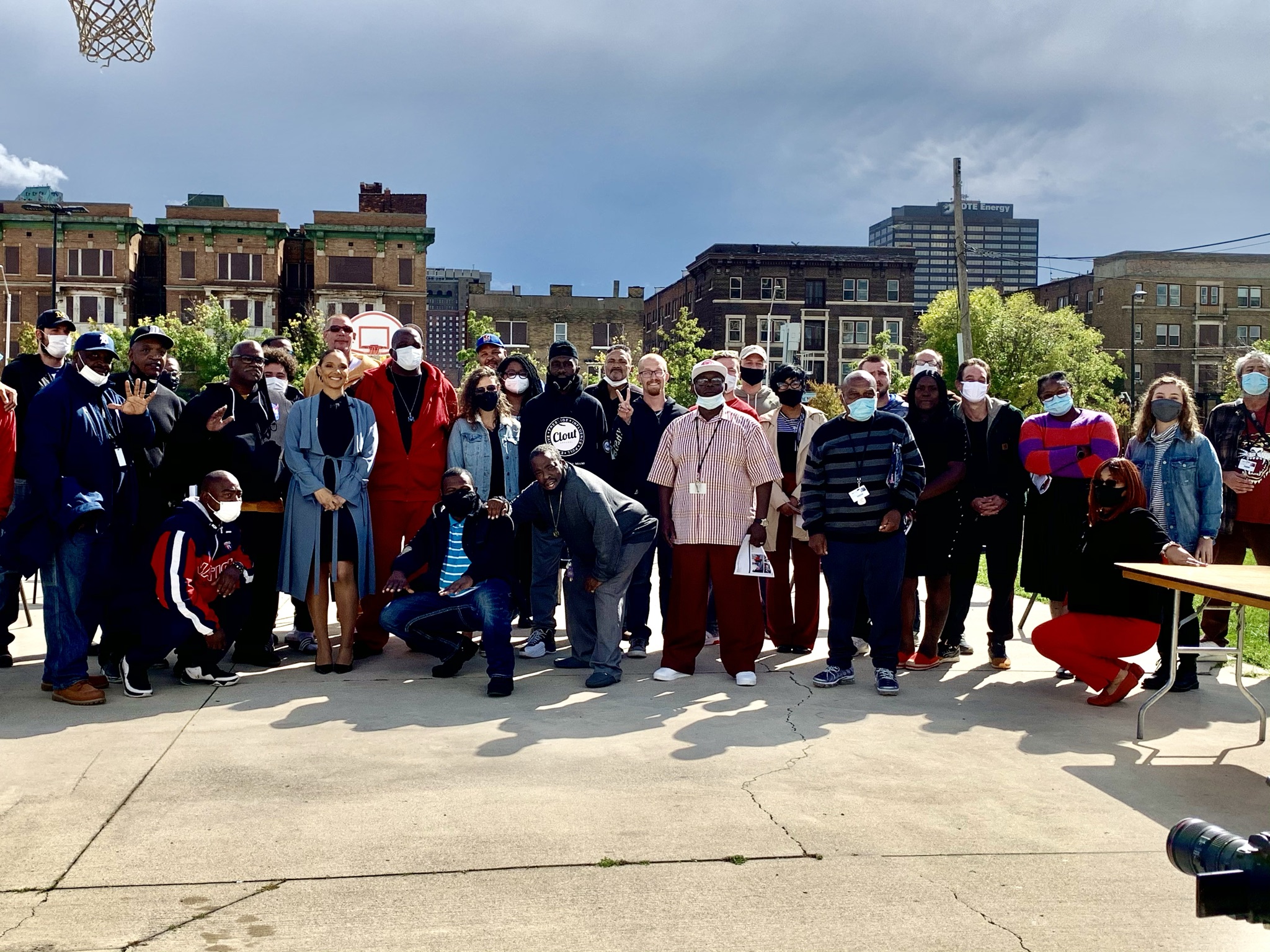
Grant Awards
The following lists show The Jewish Fund grants that were approved during the 2020-2021 fiscal year at the May and November 2020 board meetings. The lists include both new and continuation grants and are divided into sections reflecting the primary program areas of The Jewish Fund’s grantmaking priorities.
Health and Welfare of the Jewish Community
In keeping with its mission, The Jewish Fund emphasizes support of health and social welfare services which benefit vulnerable and/or underserved Jewish people in the community. Additionally The Fund supports innovative initiatives that enhance the historic bond between the Jewish community and Detroit.
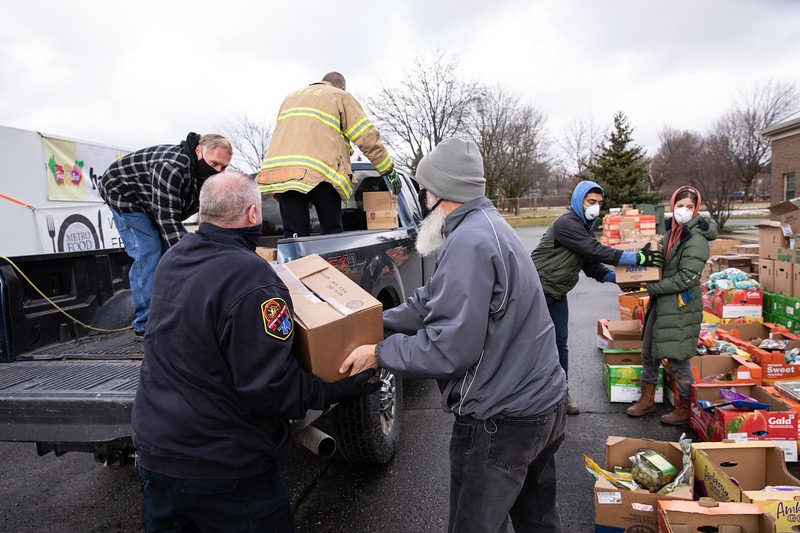
$31,570
Hazon Detroit
Third year of a three-year grant of $128,920 to support its relationship with Detroit’s North End’s Oakland Avenue Urban Farm.
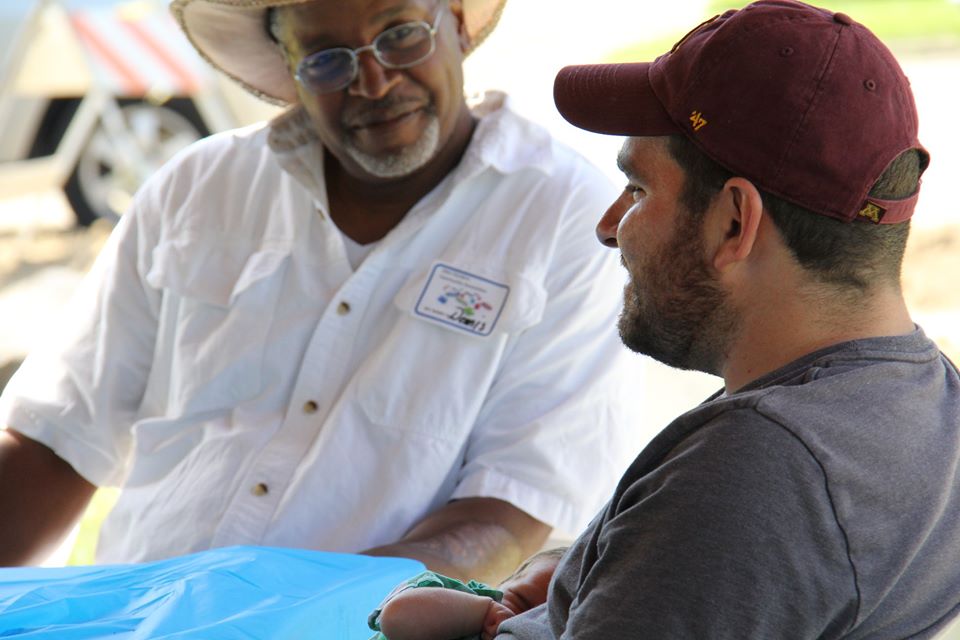
$60,000
Isaac Agree Downtown Synagogue
Second year of a two-year grant of $140,000 to continue its Tzedek Detroit initiative.
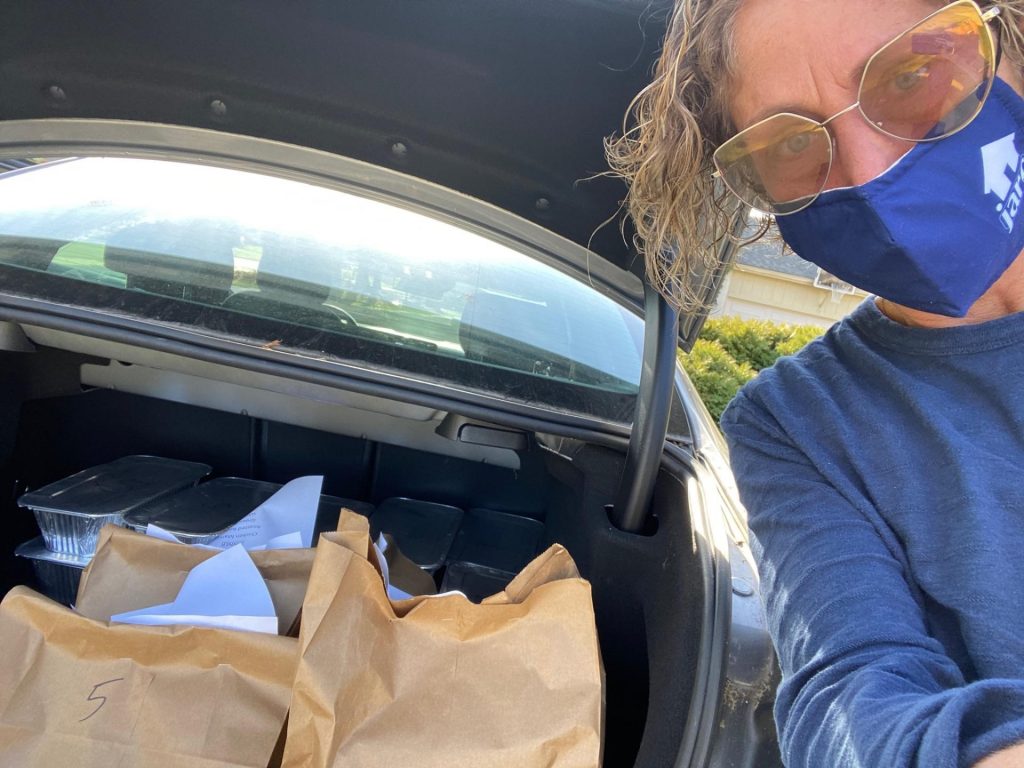
$79,830
JARC
Second year of a two-year grant of $354,660 to implement an electronic health records system.
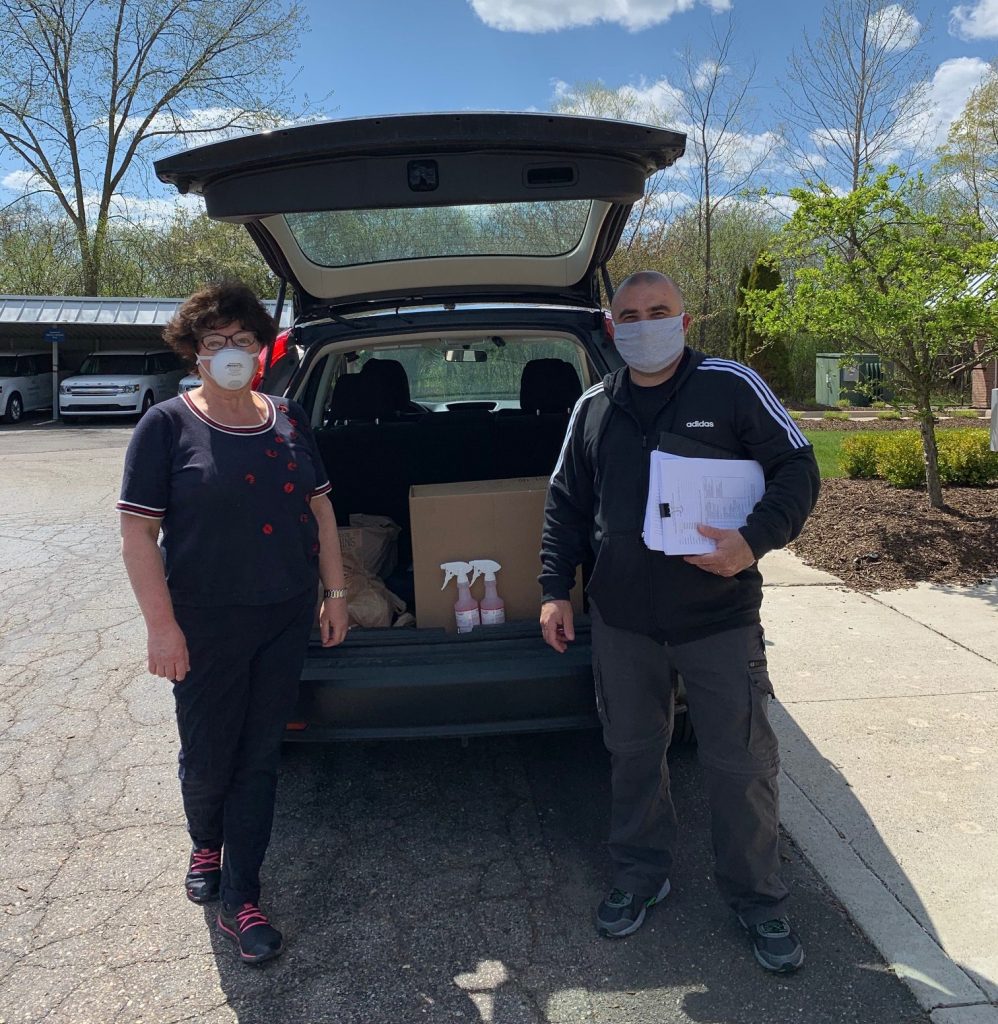
Jewish Family Service of Metro Detroit
$68,155Third year of a three-year grant of $203,951 to fund a social worker dedicated to BBYO.
$50,000Second year of a two-year grant of $120,000 to support the profession staff position of the Southeast Michigan Senior Regional Collaborative.
$300,000Second year of a three-year grant of $900,000 to support aging at home support services.
$85,000Third year of a three-year grant of $275,000 to support its chronic care management pilot program.
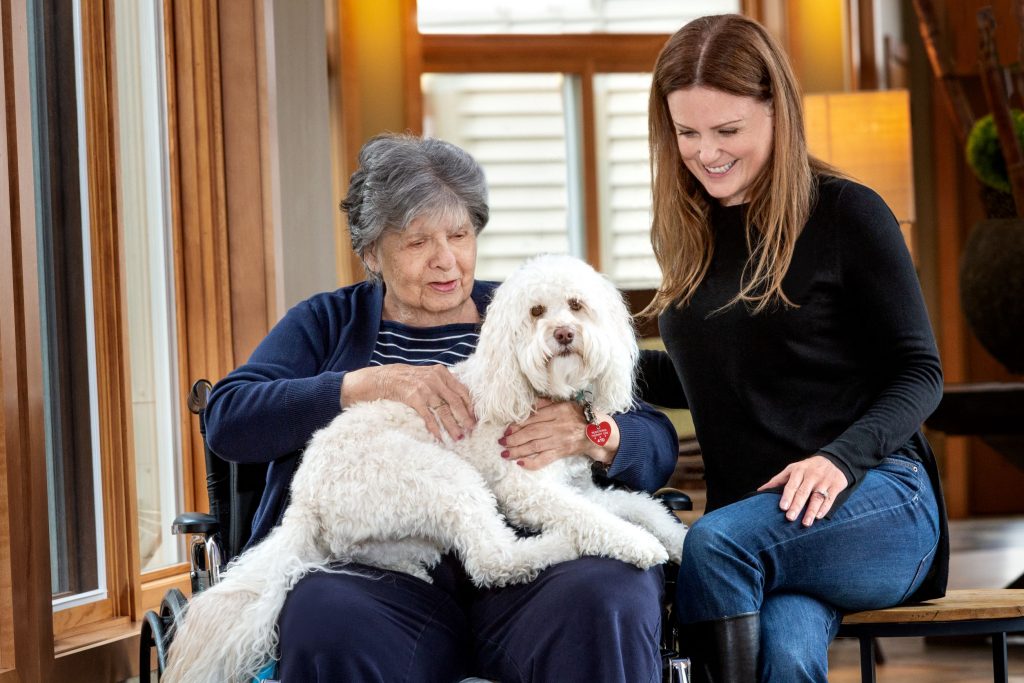
$75,000
Jewish Hospice & Chaplaincy Network
Third year of a three-year grant of $225,000 to support expansion of its Life Enrichments Program.

$50,000
Jewish Senior Life
Third year of a three-year grant to support its Securing Our Future Campaign.
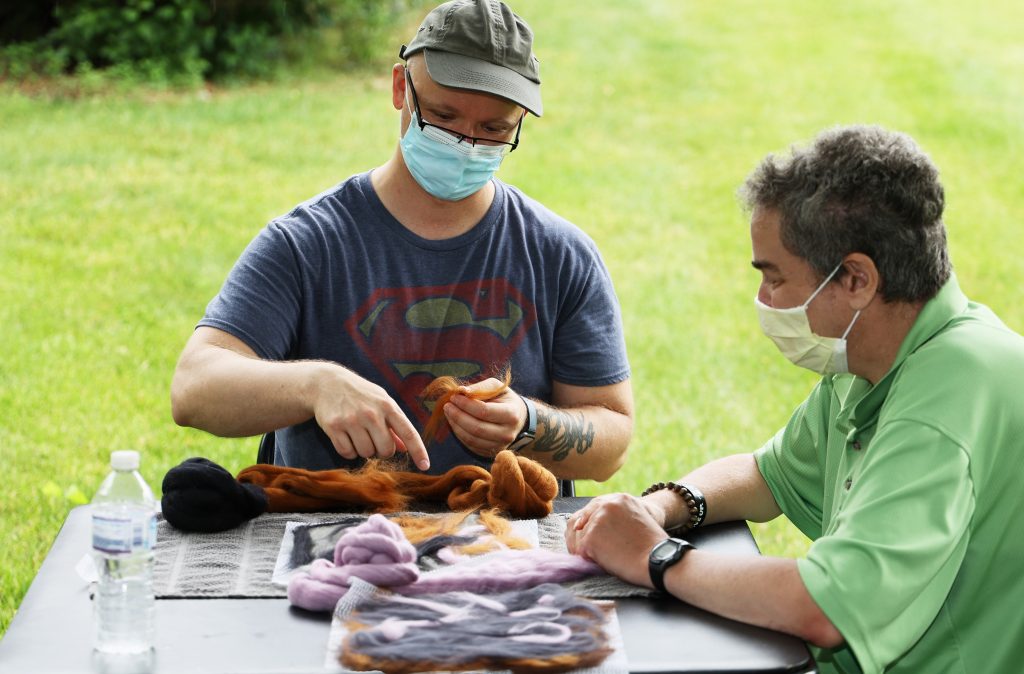
$91,250
Kadima
First year of a three-year grant of $222,090 to transition its activity center into an evidence-based Clubhouse model.
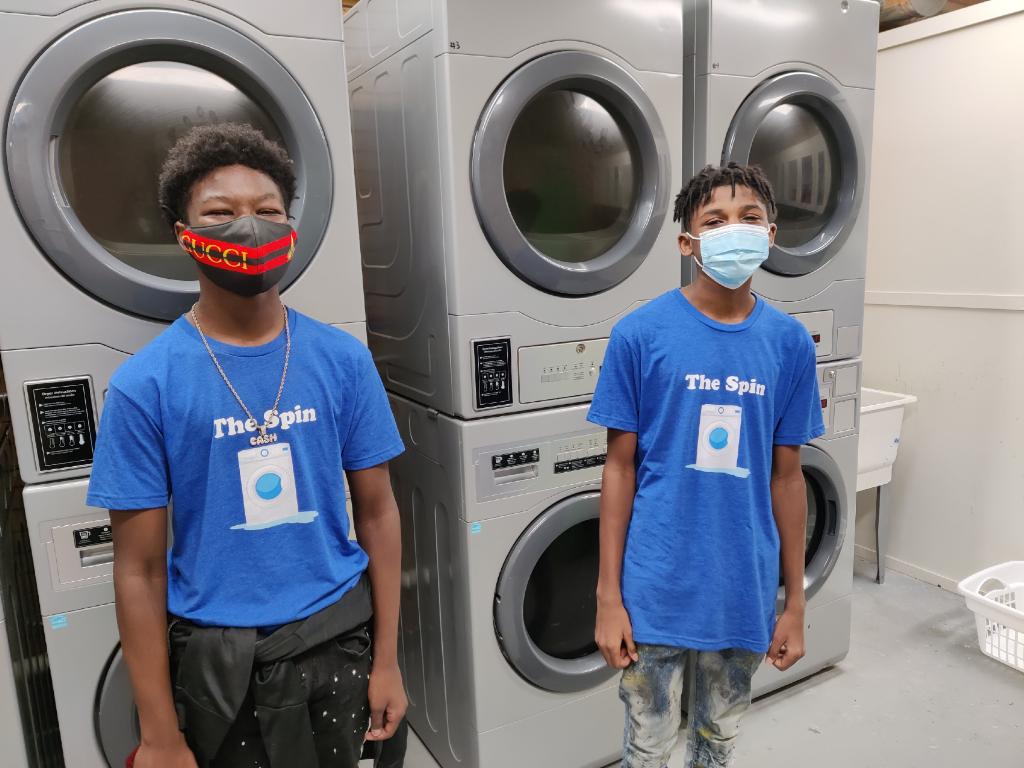
$100,000
Life Remodeled – A Nonprofit Corporation
One-year grant to transform the former swimming pool area into a student-centered space.
$225,000
Yeshiva Beth Yehudah
First year of a three-year grant of $585,000 to expand the school’s special needs education programs.
Health of the Metropolitan Detroit Community
In order to best respond to the health needs of vulnerable and/or underserved residents of Detroit and the surrounding area, The Jewish Fund supports efforts to increase access to quality health care services and to improve health outcomes through early childhood health interventions.
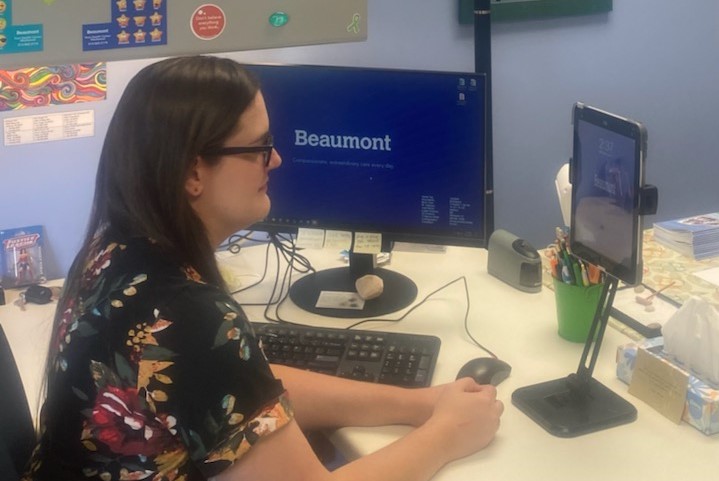
$10,800
Beaumont Foundation
Second year of a two-year grant of $30,800 to expand cognitive behavioral therapy to teens currently without access to these services via tele-health.
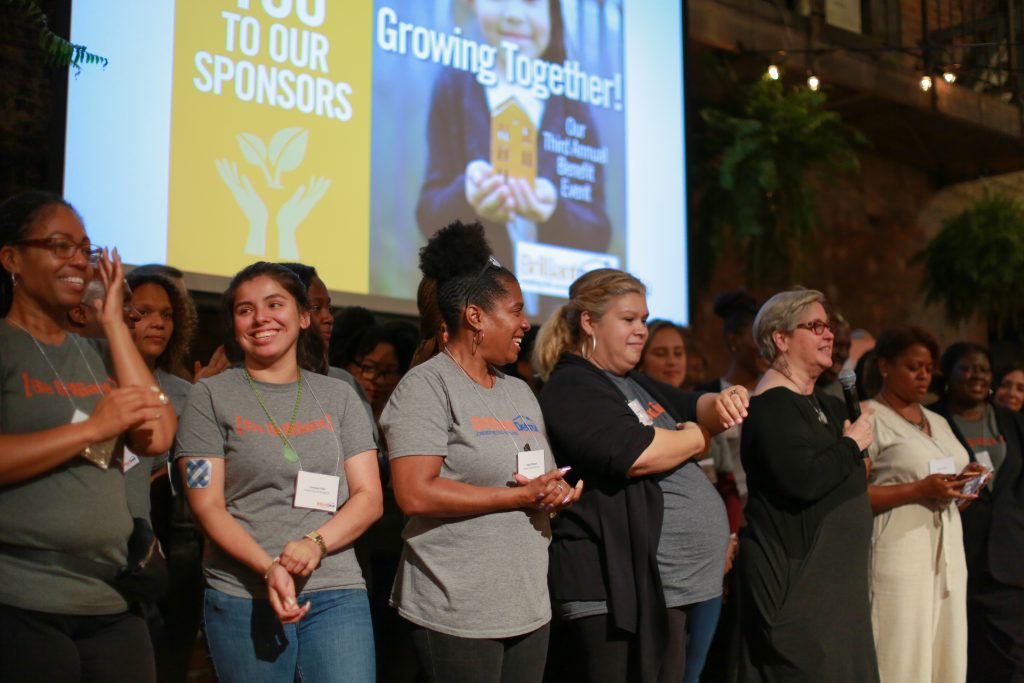
$35,000
Brilliant Detroit
Second year of a two-year grant of $70,000 to fund a development director.
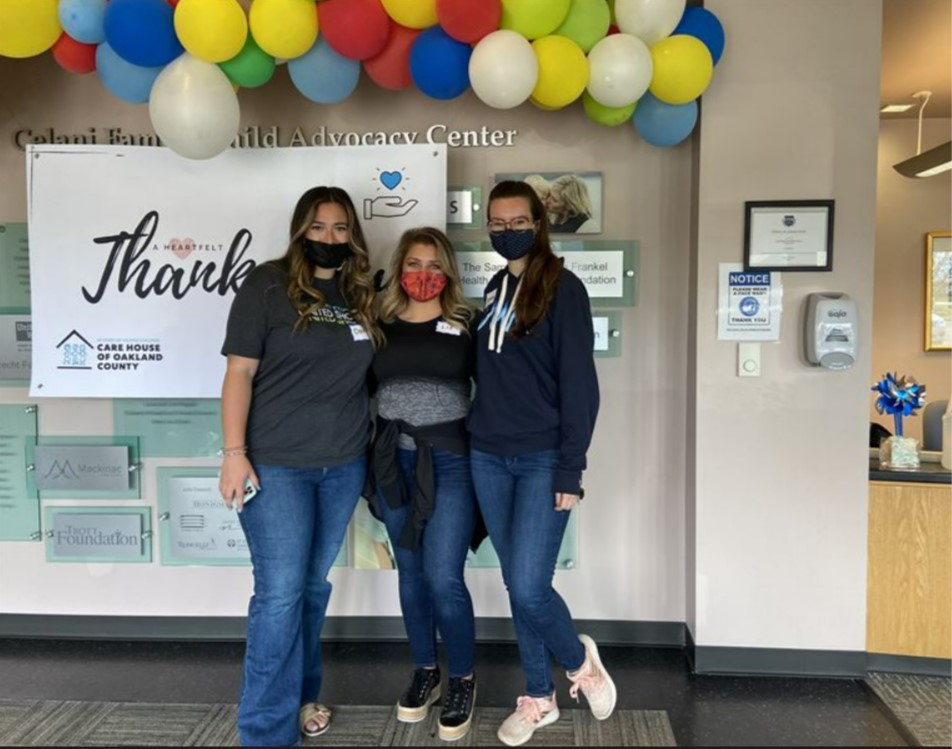
$5,000
CARE House of Oakland County
Third year of a three-year grant of $36,350 to provide child abuse prevention training for health professionals.
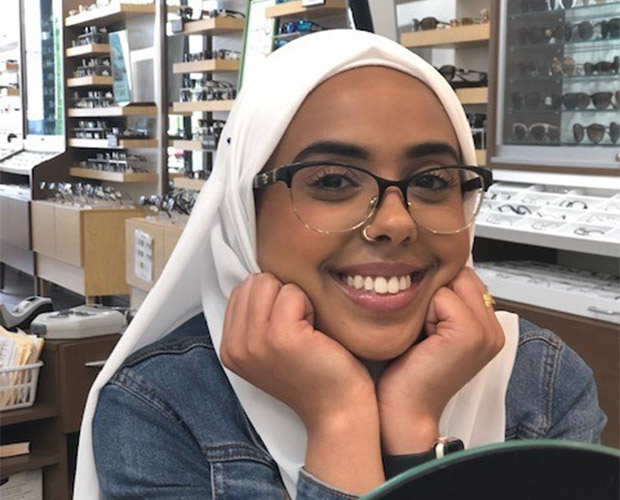
$20,000
Children’s Foundation
First year of a two-year grant of $40,0000 to provide eyeglasses to students in need within Hamtramck Public Schools.
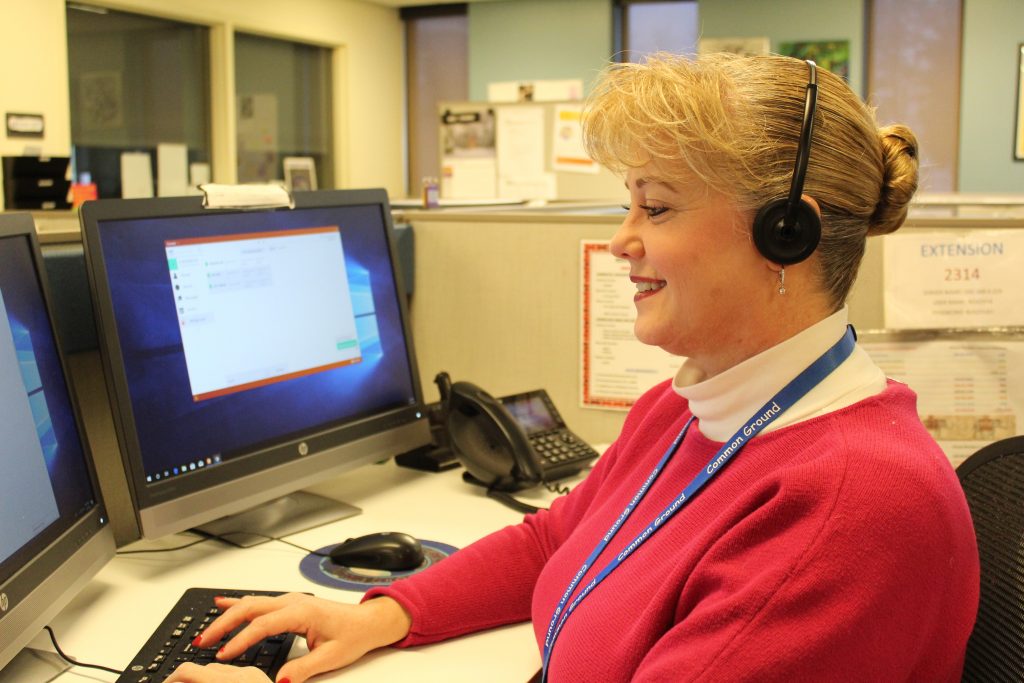
$50,000
Common Ground
Second year of a two-year grant of $70,000 to support its 24/7 Crisis Text and Chat program.
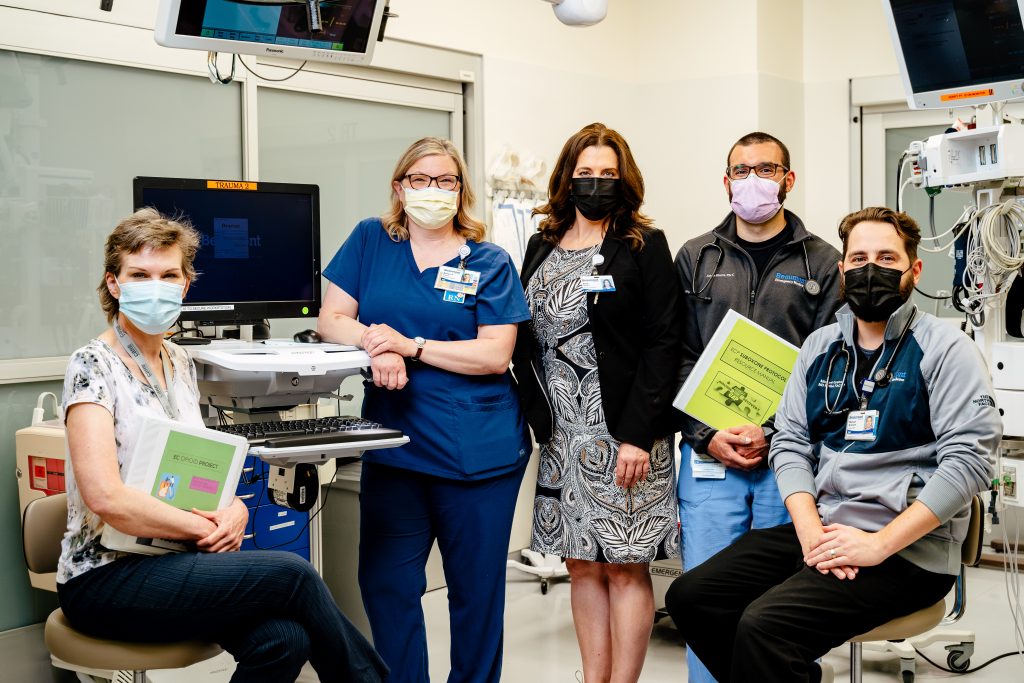
$50,000
Community Foundation for Southeastern Michigan
Second year of a two-year funder collaborative grant of $100,000 to increase and enhance access to quality treatment of opioid use disorder.
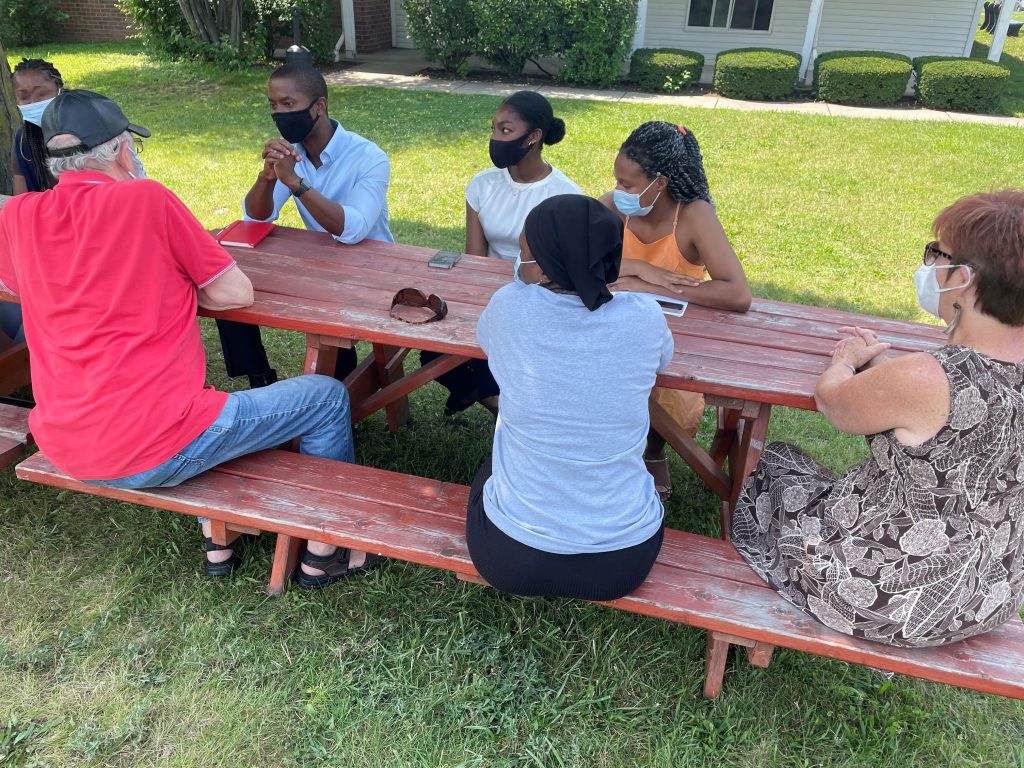
$45,000
Freedom House
Second year of a three-year grant of $133,000 to support the partnership with Wayne State Global Health Alliance which trains asylum seekers to advocate for their health care needs.
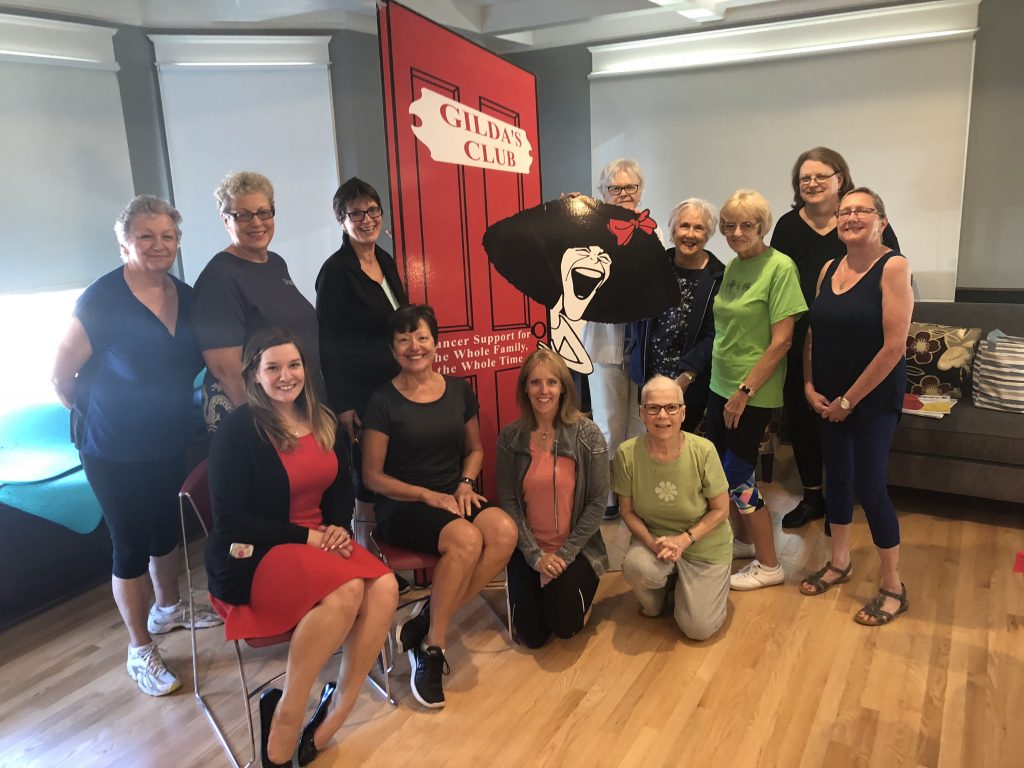
$4,060
Gilda’s Club
Third year of a three-year grant of $20,000 to support, educate and empower cancer survivors.

$13,800
LGBT Detroit
Third year of a three-year grant of $69,000 to support its Brother 2 Brother program.
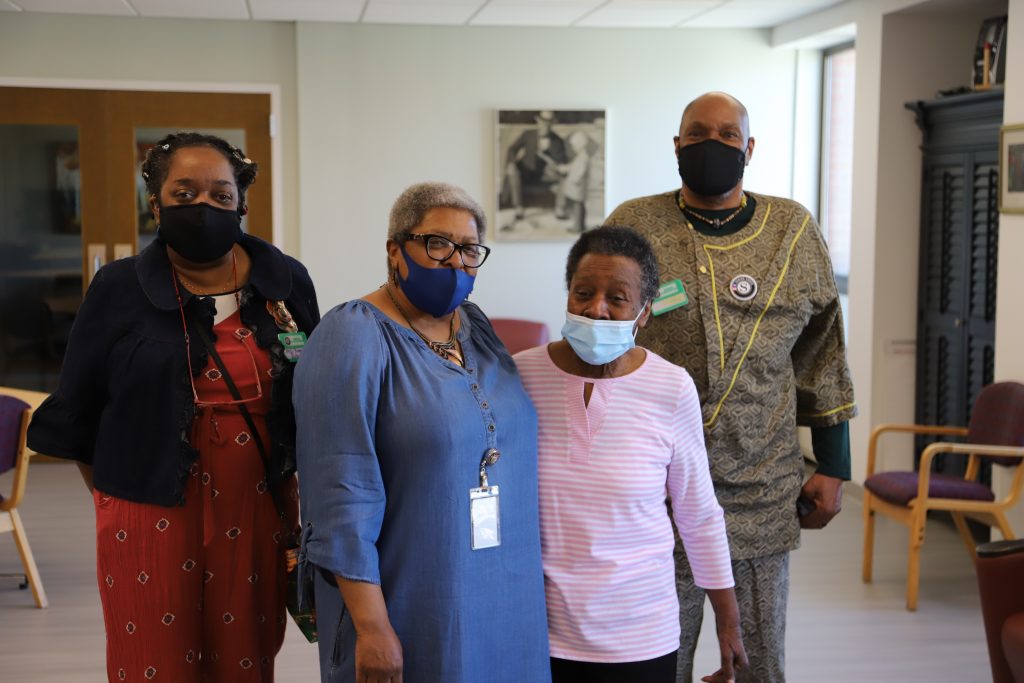
$60,000
Luella Hannan Memorial Foundation
Third year of a three-year grant totaling $195,000 for the adult day program.
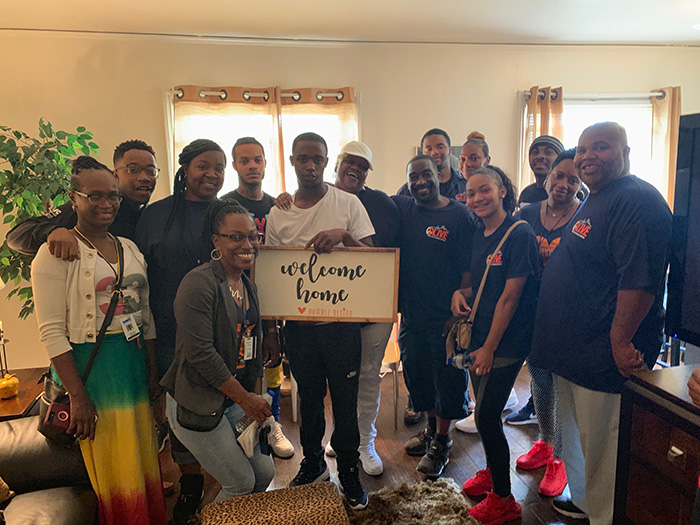
$150,000
Metro Solutions/DLIVE
Third year of a three-year grant totaling $450,000 for the expansion of DLIVE (Detroit Life is Valuable Everyday).
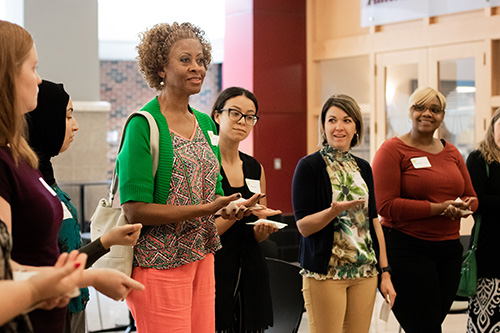
$60,000
Regents of the University of Michigan/TRAILS
Second year of a two-year grant of $120,000 to support the TRAILS mental health program benefiting students in Detroit Public Schools Community District.
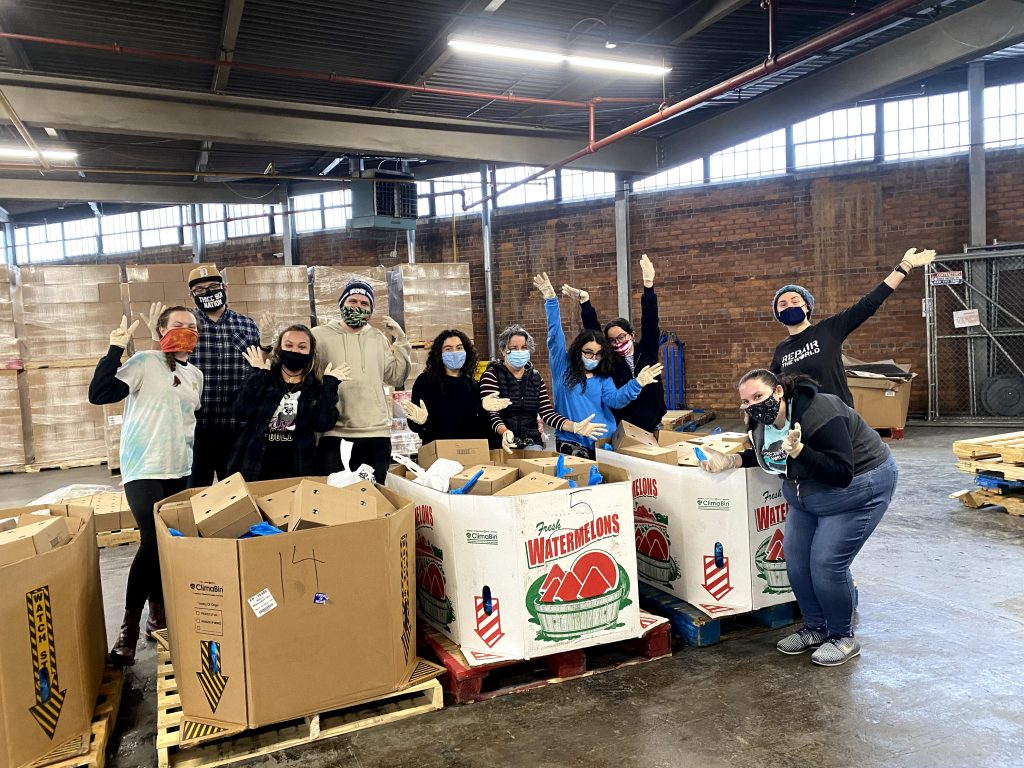
$53,800
Repair the World
Second year of a three-year grant of $168,350 to expand its capacity through new community collaborations and programming.
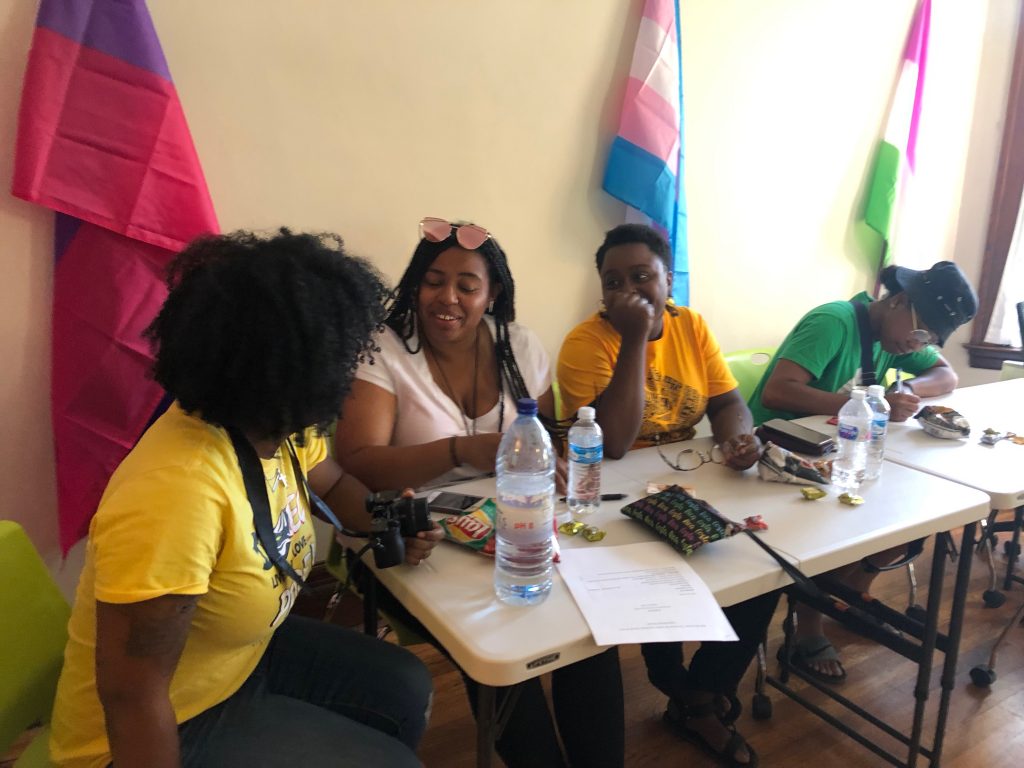
$25,000
Ruth Ellis Center
One-year grant to support the position of director for the Center for Lesbian and Queer Women and Girls.
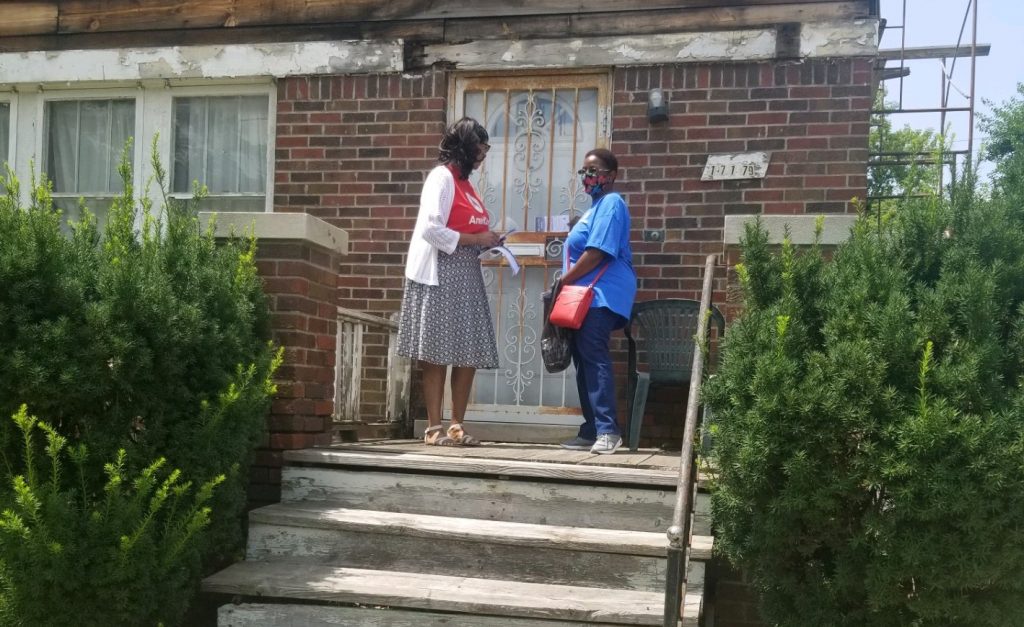
$59,625
Wayne State University Center for Urban Studies
Third year of a three-year grant of $172,016 to support its Intimate Partner Violence Program.
Discretionary Fund Grants
- Jewish Senior Life
- $1,035
- for a client experincing a bug infestation and severe economic hardship.
- Heartfelt Harvest
- $4,300
- for new refrigeration units to assist with increased need and food insecurity early in the pandemic.
- American Red Cross
- $5,000
- for wildfire relief in California and Oregon.
- Detroit Public Schools Foundation
- $7,500
- to support homeless students within the Detroit Public School system during the pandemic.
- Americares
- $12,780
- to pay medical expenses for a famiy experiencing extreme economic hardship.
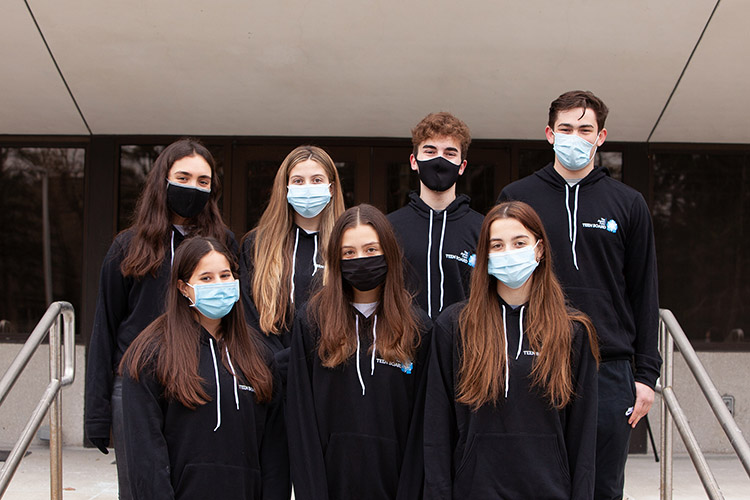
The Jewish Fund Teen Board
The Jewish Fund Teen Board is a collaborative philanthropy group providing Jewish teens from the Metro Detroit area the opportunity to learn about grantmaking and philanthropy.
Teen Board 2020-2021
In 2020-2021, our seventh year of programming, two cohorts of teens participated in the grantmaking process. Year 1 consisted of 28 teens experiencing grantmaking for the first time. In Year 2, board members had chosen to continue their Teen Board experience by deepening their knowledge and skills through a second year of participation. Teen Board members, representing high schools and congregations, granted a total of $100,000. This report is about who they are, what they did and how they did it.
The Jewish Fund Teen Board is proud to be a part of the Foundation Board Incubator, a project of the Jewish Teen Funders Network, which is generously funded by Laura Lauder and the Maimonides Fund.
2020-2021
The Jewish Fund Teen Board Mission Statements
Year 1 Cohort
We as Jewish teens learn together to broaden our perspective of mental health in regards to the Metro Detroit and Jewish Communities. By incorporating our own knowledge and experiences with the values of Tikkun Olam, we aim to diminish the stigma surrounding mental health.
We want to focus on supporting those struggling with eating disorders, anxiety, depression,and trauma.
Year 2 Cohort
The Jewish Fund Teen Board Year 2 2020-2021 aims to fund programs that address the impact and social awareness resulting from the Covid-19 pandemic on the health and wellbeing of the metro Detroit community.
The Board has a special interest in grants that address education equity and minority communities
The Teen Board Experience: Voices of Our Members
These reflections were composed in a collaborative fashion in order to represent each board as a whole.
What influenced the development of your mission statement and your funding choices?
Alexa Philko (Year 1)
The impact that site visits carried was the most meaningful part of Teen Board this year. I listened in on many amazing organizations and found the Brilliant Detroit call especially interesting. Hearing firsthand from people that needed help with improvement of mental health resources and hearing what they were going to do with the money was super impactful. The stories that were shared gave us a significantly deeper insight on what the board’s impact would make by supporting them. These visits made my teen board experience more meaningful.
Zach Frank (Year 1)
I believe that the importance of our mission statement varies between all of our board members. Personally, I have struggled with mental health issues in the past, so our mission statement really resonates with me and many others throughout the community. I know that mental health issues often go misunderstood so I believe that our mission statement is extraordinarily important.
Shayna Foreman (Year 1)
During the time generations before us, it was not socially acceptable to recognize living with depression, anxiety, an eating disorder, or other mental health disorders. As society progressed, our generation, teenagers, have been pioneers in learning and teaching others to break the stigma surrounding mental health. It is being discussed more within family units and the larger community, even many schools have weeks dedicated to mental health and wellness. Especially during the COVID-19 pandemic, people have found themselves more in need than ever to talk to someone about their mental health and what is going on within themselves during this time of isolation. This is why it is so important The Jewish Fund Teen Board invests in nonprofits that focus their attention on mental health, eating disorders, and trauma within both children and adults. It shows that as a collective community, we care about the well-being of our peers, and that we want to implement our Jewish values into breaking the stigma and coping with the issue.
“I was nervous at first to make new friends because my whole life I’ve been with the same people every day, but on Teen Board, I got to learn so many things about how different Jews live and especially what the interpretation of Judaism means to them.”
– Yakira Hyman
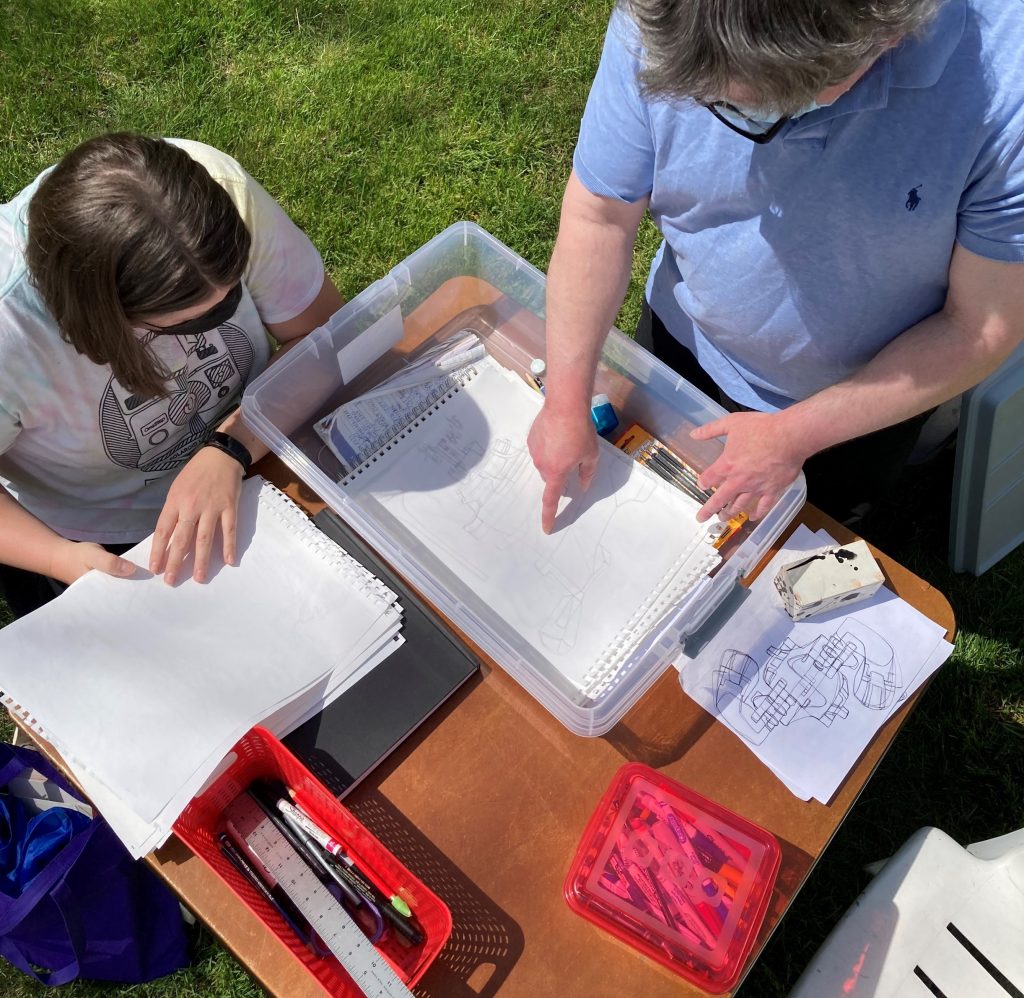
“Especially during the COVID-19 pandemic, people have found themselves more in need than ever to talk to someone about their mental health and what is goin gon within themselves during this time of isolation. That is why it is so important The Jewish Fund Teen Board invests in nonprofits that focus their attention on eating disorders, and trauma within both children and adults. It shows that as a collective community, we care about the well-being of our peers and that we want to implement our Jewish values into breaking the stigma and coping with the issue.”
– Shayna Foreman
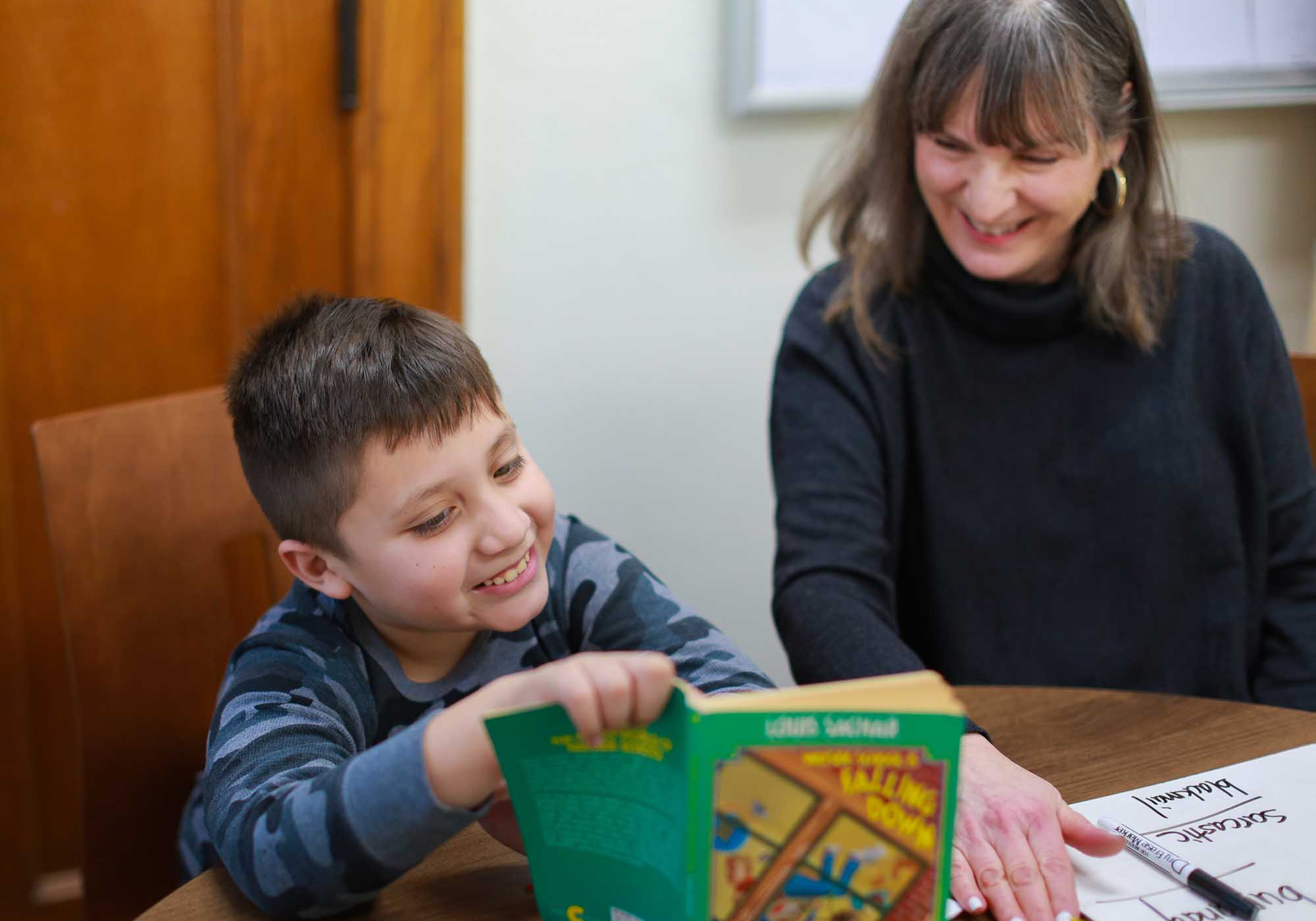
“This experience is important for teens because it teaches us important skills in leadership and budgeting. It places an emphasis on philanthropic values while giving us an opportunity to create long lasting change. The program introduced us to a new side of philanthropy and strengthened our Jewish values along the way.”
– Cami Krugel and Max Adamczyk
Carly Cohen and Shira Ellis (Year 2)
We are proud to support Forgotten Harvest and their Emergency Response Mobile Food Distribution Program. The Teen Board felt this is a well organized project that would serve many families facing food insecurity, especially facing the pandemic. This connected with our mission statement very well because our statement aimed to help with COVID impact relief in the Metro Detroit community. As a board by funding this project and learning more about the organization, we realized the hard reality that many families were facing around us. Nobody should ever have to go hungry, and both Forgotten Harvest and the Teen Board understands and cares deeply about this.
Hannah Rashty and Marlee Kroll (Year 2)
The way that The Jewish Fund decided to fund was connecting our mission to organizations that are demonstrating Tikkun Olam in those very ways. Some of the ways these nonprofits are giving back to the Jewish community and non- Jewish communities is through providing mental health resources to people struggling during the pandemic. Also, some organizations we funded such as Forgotten Harvest are giving food to impoverished communities struggling. Overall, these organizations that The Jewish Teen Board funded this year go along with the mission statement such that these organizations tie into our core Jewish values and portray Tikkun Olam through all the ways they give back to the community and serve people in need.
Cami Krugel and Max Adamczyk (Year 2)
Our mission statement was especially important this year due to the impact of COVID-19 in our community. We gave priority to organizations impacted by the pandemic that addressed issues that were brought to light because of it. We hope that the contributions we have made to these organizations will help them continue to serve the community through this difficult time. This experience is important for teens because it teaches us important skills in leadership and budgeting. It places an emphasis on philanthropic values while giving us an opportunity to create long lasting change. The program introduced us to a new side of philanthropy and strengthened our Jewish values along the way. The teens who have gotten the opportunity to be in this program get an important chance to grow as a leader and members of the community. Site visits are important to both the grant-making process and our growth as leaders. It gives teens the chance to learn about the organizations we are investing in and ask questions on a deeper level. It also allows us to see how the money we are granting is directly impacting the lives of our community. Through site visits, we also get to learn about how nonprofits work and see philanthropy from a different angle.
Haley Lipman and Jonah Mougoue (Year 2)
Our mission statement is so important because it deals with current events and is relevant to our day-to-day lives. COVID-19 and racial injustices are two of the biggest problems in contemporary world history. As a teen led group, we want to shape these issues so that they do not impact our future in a negative way.
The Leadership Experience…What are the benefits and challenges to providing leadership to your peers?
Joshua Schreiber
Leadership has always been an art, not a skill. People aren’t “better” or “worse” leaders, we simply range in how much practice we’ve had in leadership situations. Serving both on the Year 1 and Leadership cohorts, sometimes there are challenges of leadership among my peers, especially in a collaborative atmosphere that values and encourages each individual to share their opinions. These sometimes lead to disagreements upon funding, our mission, and allocation of our resources which are all bound to happen. Nevertheless, I’ve seen firsthand the benefits of leadership among myself and peers, especially in a positive environment that The Jewish Fund Teen Board fosters and creates for all members. I strongly believe that facilitating fellow teens has been beneficial to not just helping them become familiar with philanthropy and our mission through being able to share my past experience, but my peers on Year 1 have taught me so much as well. Each member of my “team” has provided me with the necessary tools to help improve upon this art of leadership, and I look forward to seeing all of us collectively master this art and become leaders in our own ways.
What is the opportunity or challenge of making funding decisions with your peers?
Adin Victor (Year 1)
Being a member of Teen Board is an important opportunity for teens because it gives us a taste of what adult philanthropy is like. You develop a number of skills throughout the entire grantmaking process such as collaboration, consensus, and patience. The Teen Board teaches teens how to evaluate community needs and distribute funds accordingly. Overall, Teen Board allows teens to grow new skills while working towards the common goal of helping both the Jewish and Detroit communities.
Cooper Schoenberg and Noah Eaton (Year 2)
Site visits allow you to see an organization for what it truly is. I think that it’s extremely beneficial to sit down and talk to the people that actually run the organization, rather than just chatting with them on email. You get to hear how the organization has impacted them and many others. It is always interesting to hear why they got involved with their organization in the first place. Getting to hear the impact it has had on them allows one to get a feel for what the organization is all about. That is why site visits are so crucial to our grant making process.
How does your Jewish identity intersect with your grantmaking?
Zachary Frank (Year 1)
In my opinion, we did a good job connecting our work to Jewish values. I have been studying Jewish law recently and one of the biggest parts of it is that you must do the right thing for your community rather than just not doing the wrong thing like the law says in America. I believe that through our grant making on The Jewish Fund Teen Board, we were doing the right thing and staying connected to our Jewish values.
Isabel Zaltz and Caleb Kleinfeldt (Year 2)
This year, the Teen Board chose to allocate $10,000 of our budget to the Racial Justice Leadership Program, through the Jewish Federation of Metropolitan Detroit and Repair the World. This program will allow a group of Jewish professionals and community leaders to participate in Tikkun Olam by gaining an in-depth understanding of racial injustice and learn tactics to counter racism. After completing the Racial Justice Leadership Program, participants will be empowered to spread their knowledge about racial inequities to their own organizations in order to help create a more just society.
What are the pros and cons of using consensus to make decisions?
Benji Stern (Year 1)
During this process, we had the opportunity to share our opinions to reach a collective consensus together. I thought this was a crucial step in the grant making process because although a simple vote could easily determine our impact, being able to fully comprehend the issues and organizations in front of us offered so much more. We had an opportunity to truly grasp the impact that our awards would make. On the contrary, using consensus did slow the process of allocating our funds, yet being able to have a majority both agree and feel passionate about that agreement is worth it.
What have you learned during your time on the Teen Board that you would like to pass along to other grantmakers?
Yakira Hyman (Year 1)
There are so many things I would love to spread to teens about Teen Board, but one thing in particular truly stands out:. new friendships. I’ve grown up in a small Jewish private school and I’ve never really been placed in a situation out of my “bubble”. I applied to Teen Board because I knew it would be a great way to meet so many diverse people from different schools and backgrounds. I was nervous at first to make new friends because my whole life I’ve been with the same people everyday, but on Teen Board, I got to learn so many things about how different Jews live and especially what the interpretation of Judaism means to them. I’m so grateful for this amazing opportunity I had to meet so many great new people.
Adin Victor (Year 1)
Site visits allow the board to learn more about who we will potentially be giving our awards to and the specific impact of our money will have. By going on these site visits, we also form closer bonds with other board members because we must all communicate with each other as a small group for a common goal.
Shayna Foreman (Year 1)
I was initially hesitant to join The Jewish Fund. I had no experience with grantmaking and the process was very new to me. I’m so glad I did not let that fear stop me from applying since I was taught everything I needed to know while I was on the Year 1 board. I’m glad to say I am now equipped with the critical skills for philanthropy and grantmaking, as well as communication skills I will carry with me for the rest of my life. It is so important for teens who want to make a difference in the community to join the board because what we do here has a lasting impact.
Adam Krugel and Julia Klein (Year 2)
During our time on the Teen Board, we learned the importance of having a diverse group of voices when discussing issues in our community. There are many different backgrounds of Judaism in our area, and it is important that we try to see them all. Learning the philanthropic process is also extremely important, it provides future career skills. Understanding the grantmaking process and determining which organizations receive funding is also important. Researching the different organizations gave us a good sense of our community and our place in it.
Year 1 Grantmaking
Supporting People with Mental Health Issues or Disabilities, Particularly Those Who Struggle to Afford Services.
When COVID-19 violently brazed the community, members of the Jewish Fund Teen Board possessed the maturity, empathy, and understanding to digest the full impact of this once-in-a-lifetime pandemic. From seeing a significant increase of desperately needed mental health services caused by quarantine and isolation to the effects of poverty due to unemployment rates comparable to the Great Recession, members of the board knew that in order to form an impact, they must first create a purpose. Seeing these two demands exist without the proper resources to fulfill them, the Jewish Fund Teen Board created not just a mission statement targeting these issues, but a meaningful call to action to meet these challenges head-on and leave metropolitan Detroit in a better place.
The Teen Board is proud to fund four organizations committed to making significant community impact in this area:
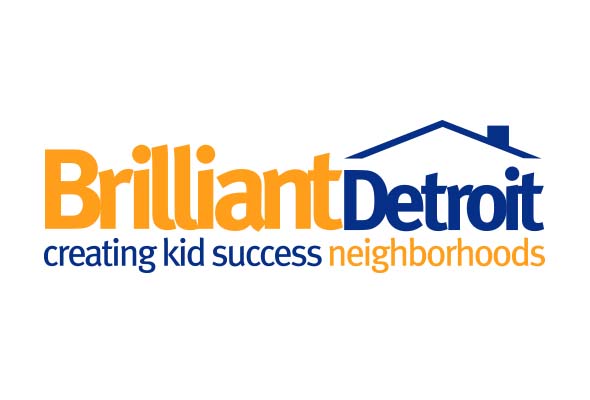
$5,000
Brilliant Detroit
to expand the peer-led mental health support group and extend to two additional Brilliant Detroit hubs.
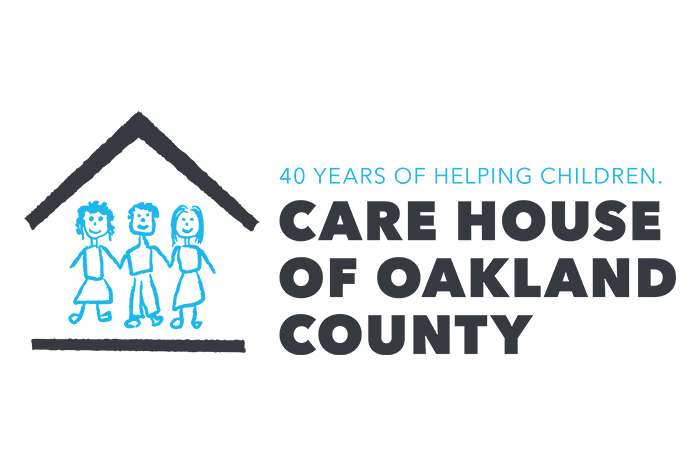
$15,000
CARE House of Oakland County
to provide mental health treatment programming to children who have experienced abuse and/or neglect.
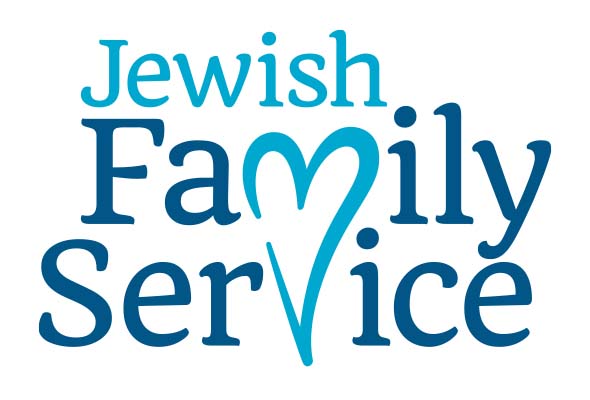
$15,000
Jewish Family Service of Metropolitan Detroit
to advance and expand suicide prevention efforts by implementing a Zero Suicide framework.
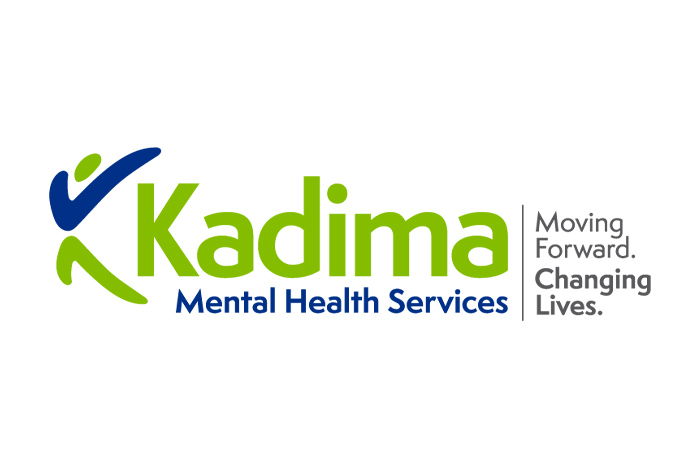
$15,000
Kadima
to provide therapeutic, educational, and experiential creative arts programming for adults living with mental health challenges.
Year 2 Grantmaking
Improving the Health and Welfare of Individuals in our Community Who Are Experiencing Economic Hardship.
With increasing wealth inequality and difficulty of maintaining proper health due to factors such as the pandemic, rising medical care costs, and climate change, the most susceptible members of our community had a significant need for the Jewish Fund’s assistance. This motivated the Year 2 board to emphasize their mission on health and welfare of those struggling financially, providing a layer of security to those already dealing with the stressful effects caused by the COVID-19 pandemic, such as increased unemployment and exposure of inequities built within our healthcare system. The Year 2’s decision making kept these factors in mind to ensure solutions within our community that provide effective results.
The Teen Board made three grants to organizations working to address this issue:
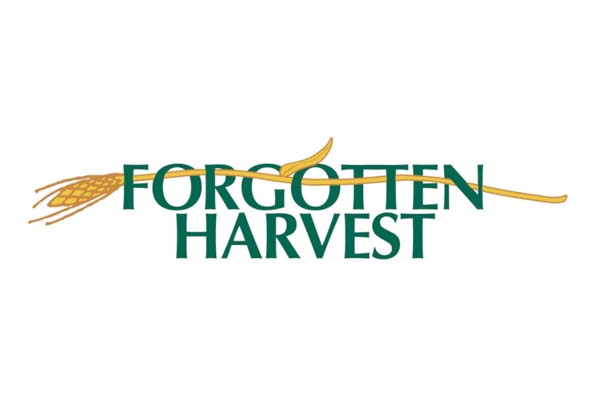
$15,000
Forgotten Harvest
to provide nutritious food to children, families, and seniors facing hunger during metro Detroit’s extended COVID-19 crisis.
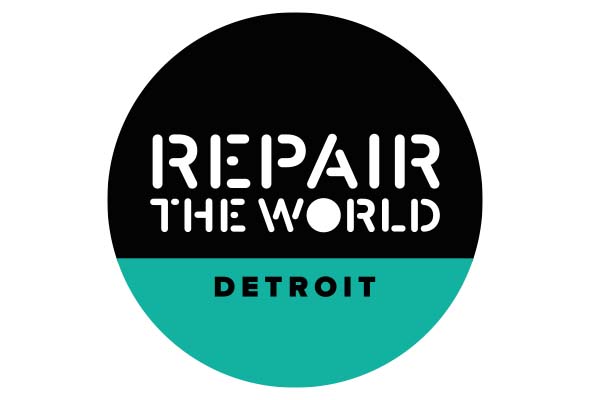
$10,000
Repair the World & Jewish Federation of Metropolitan Detroit
to create an in-depth professional development program that will train Jewish professionals to identify and counter racism within their organizations and communities..

$15,000
Jewish Family Service of Metropolitan Detroit
to alleviate primary and secondary COVID trauma impact on staff delivering support to community members.

$10,000
Knights and Dames of The Order of Malta Medical and Dental Clinic
to counter effects of COVID-19 and an prepare for an increase in patients due to the financial effects of the pandemic and a move to a handicap accessible facility.
Seven Years of Engaging Jewish Teens…
High Schools Represented
- Aim High School
- Akiva Hebrew Day School
- Berkley High School
- Birmingham Groves
- Bloomfield Hills High School
- Canton High School
- Cranbrook Kingswood
- Detroit Country Day School
- Eton Academy
- Farber Hebrew Day School
- Frankel Jewish Academy
- Groves High School
- International Academy
- North Farmington High School
- Northville High School
- Oakland Early College
- Rochester Adams High School
- Seaholm High School
- The Roeper School
- Walled Lake Central High School
- Walled Lake Northern High School
- Walled Lake Western High School
- West Bloomfield High School
Congregations Represented
- Adat Shalom Synagogue
- Aish Detroit
- Congregation Beth Ahm
- Congregation Beth El (Windsor)
- Congregation Beth Shalom
- Congregation B’nai Moshe
- Congregation Or Chadash
- Congregation Shaarey Zedek
- Congregation Shir Tikvah Keter Torah
- Ohel Moed of Shomrey Emunah
- Or Chadash
- Partners in Torah
- Temple Emanu El
- Temple Israel
- Temple Shir Shalom
- The Birmingham Temple
- Unaffiliated
- Woodward Avenue Shul
- Young Israel of Oak Park
- Young Israel of Southfield
…and Impacting Our Community!
$550k
in grant dollars awarded
Focus Areas Addressed:
- Adolescent Mental Health
- Covid-19
- Economic Hardship
- Family Communication
- Intimate Partner Violence
- Kindergarten Readiness & Early Childhood Health
- Older Adults
- Special Needs
- Substance Abuse
100
Grant Proposals Reviewed
86
Site Visits Conducted to
45
Diverse Metro Detroit Nonprofits
165
Jewish High School Students Engaged
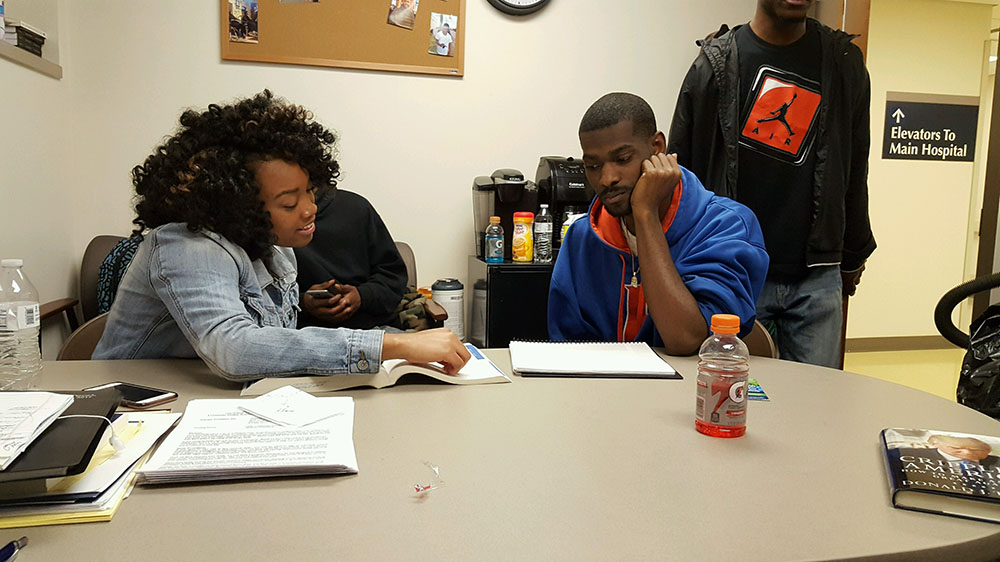
Financial Statements
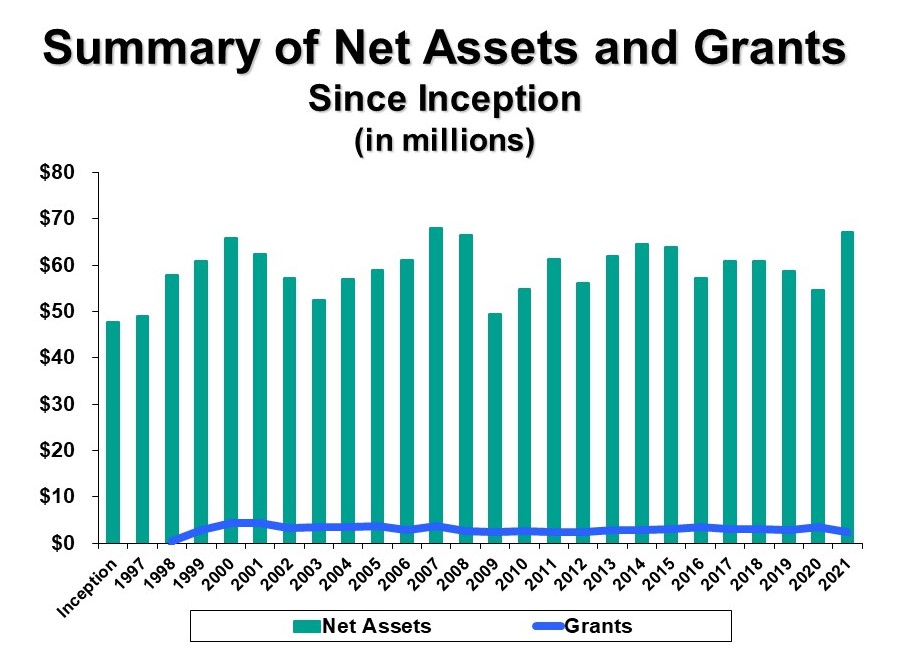
For the year ending May 31, 2021 The Jewish Fund had an investment gain of $13 million and the investment’s asset value was $68 million. The table above summarizes The Fund’s historic asset balances since its inception in 1997. During the 2021 fiscal year, The Jewish Fund’s grants and expenses totaled $2.8 million, representing 38 one-year payments of multi-year and single-year grants. Since inception, The Fund has awarded over $73 million in grants.
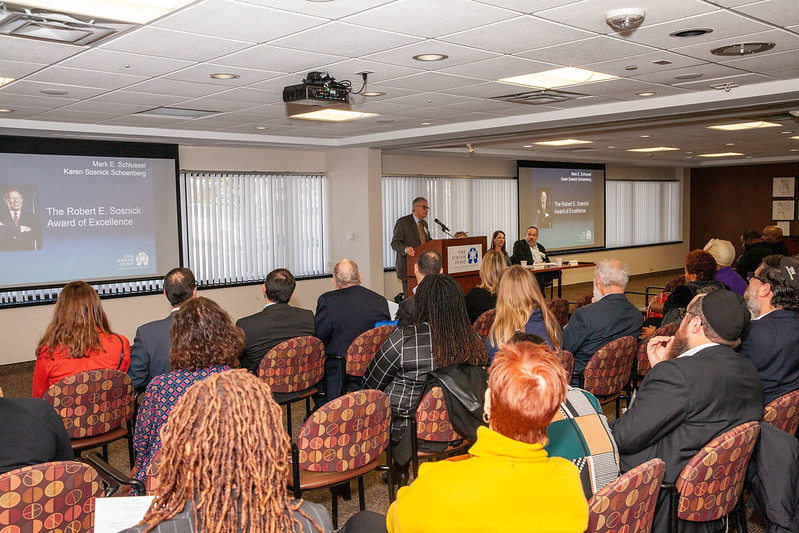
Board of Directors
The Jewish Fund
- Michael Eizelman
- Chair
- Jeffrey B. Schlussel
- Vice Chair
- Peter M. Alter
- Michael Berger
- Dennis S. Bernard
- Roselyn Komisar Blanck
- Penny Blumenstein*
- Jeffrey M. Davidson
- Jennifer Friedman, Ph.D.
- Lynda Giles, Ph.D.
- Paula Glazier
- Nancy Grosfeld*
- Jay Hack
- Renee Handelsman, M.D.
- Laura A. Hughes
- Steven Ingber
- Sherri L. Ketai
- Ronald A. Klein
- Mark L. Kowalsky
- Richard Krugel, M.D.*
- Matthew B. Lester
- Beverly Liss
- Ilana K. Liss
- Rabbi Harold S. Loss
- Michael W. Maddin*
- Robert H. Naftaly*
- Marcie Hermelin Orley
- Susie Pappas
- Marta Rosenthal
- Susie Schechter
- Mark E. Schlussel*
- Karen Sosnick Schoenberg*
- Leah Trosch
- Michael R. Tyson
- Hon. Helene White
- Lawrence A. Wolfe
- Dorothy Benyas
- Secretary / Treasurer
- Robert Sosnick זצ״ל
- Mark E. Schlussel
- Co-Founding Chairs
Staff of the Jewish Fund
- Margo Pernick
- Executive Director
- Laura Charnas
- Teen Board Coordinator
- Rabbi Ari Witkin
- Teen Board Facilitator: Year 2
- Kristin Moskovitz
- Grants Management Coordinator
- Emily Abrams
- Teen Board Social Media Intern
- Joshua Schreiber
- Max and Marjorie Fisher Summer Intern
Teen Board
Year One
- Allie Adams
- Max Barish
- Elizabeth Doran
- Grant Fleischer
- Eli Foltyn
- Evan Foltyn
- Shayna Foreman
- Zachary Frank
- Max Friedman
- Isabelle Goldstein
- Bella Gottlieb
- Yakira Hyman
- Mia Jacobson
- Ian Kraft
- Bella Muchnick
- Libby Neuvirth
- Noa Ostroff
- Noa Pergament
- Alexa Philko
- Isaac Pitt
- Daniella Press
- Isaac Saulson
- Avi Selesny
- Lilli Semel
- Lindsay Schlussel
- Benji Stern
- Eryn Stern
- Ruby Stoller
- Adin Victor
Year Two
- Max Adamcyzk
- Victor Berger
- Josh Bertman
- Alison Chapnick
- Carly Cohen
- Morgan Cook
- Noah Eaton
- Logan Edelheit
- Max Edelheit
- Shira Ellis
- Julia Klein
- Caleb Kleinfeldt
- Marlee Kroll
- Adam Krugel
- Cami Krugel
- Mia Lewis
- Haley Lipman
- Cara Lopatin
- Jonah Mougue
- Hannah Rashty
- Tali Rubenstein
- Lindsay Schlussel
- Cooper Schoenberg
- Macy West
Teen Board Leadership Council Members
- Jane Borenstein
- Chase Brodsky
- Abby Foltyn
- Lily Foltyn
- Haylie Polakoff
- Josh Schreiber
- Isabel Zaltz
- Zoe Zaltz